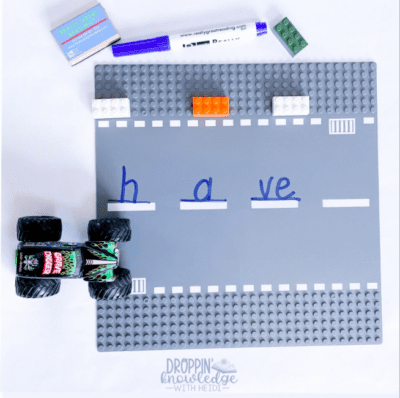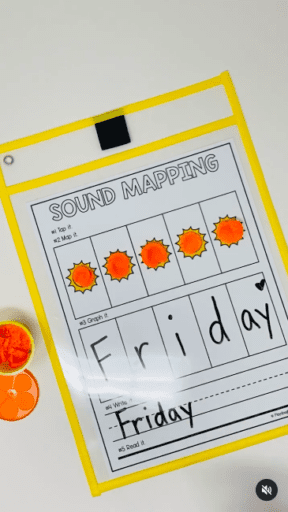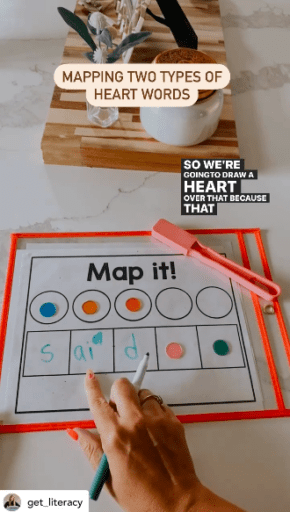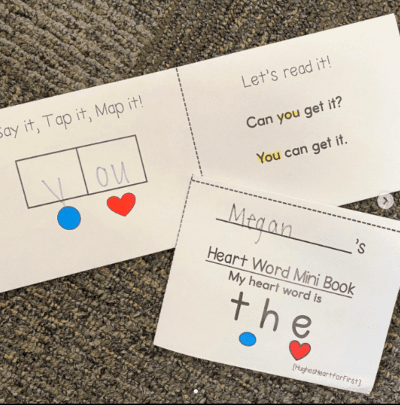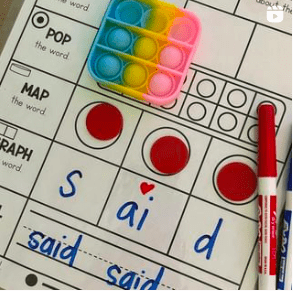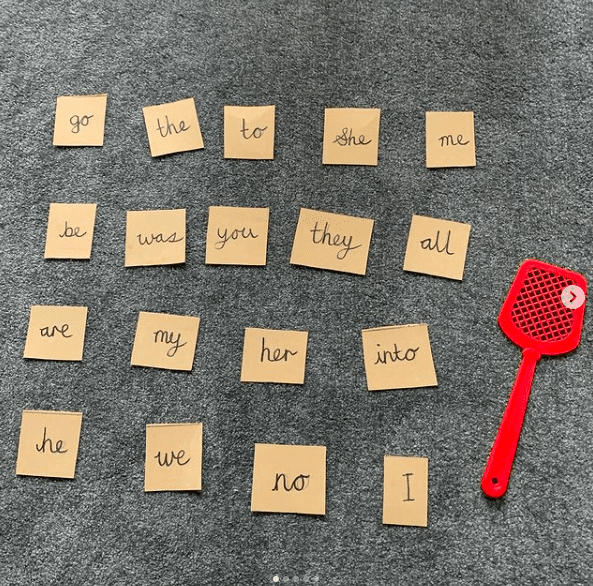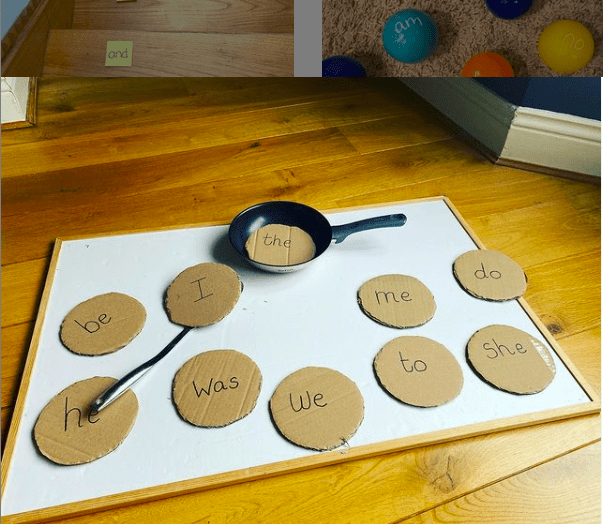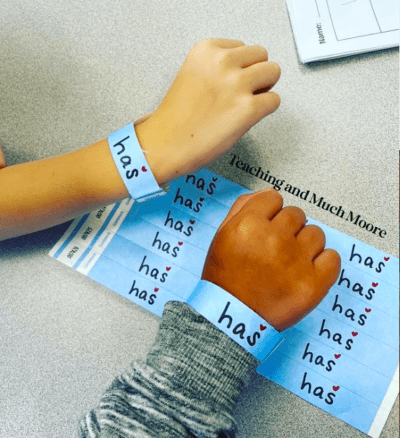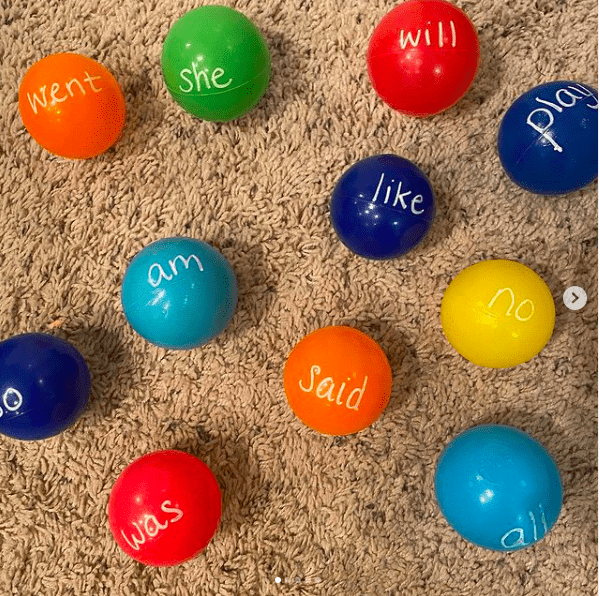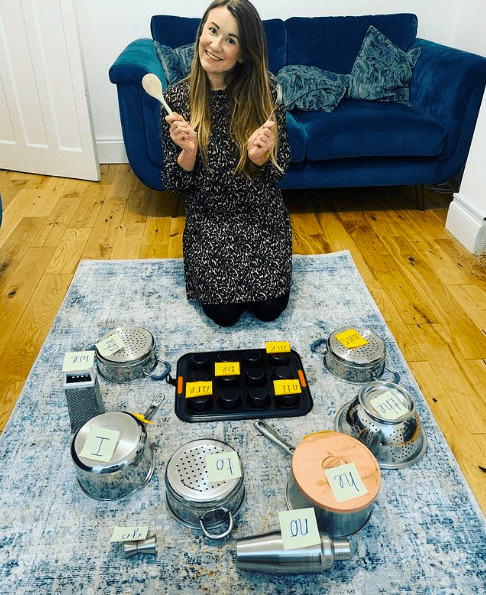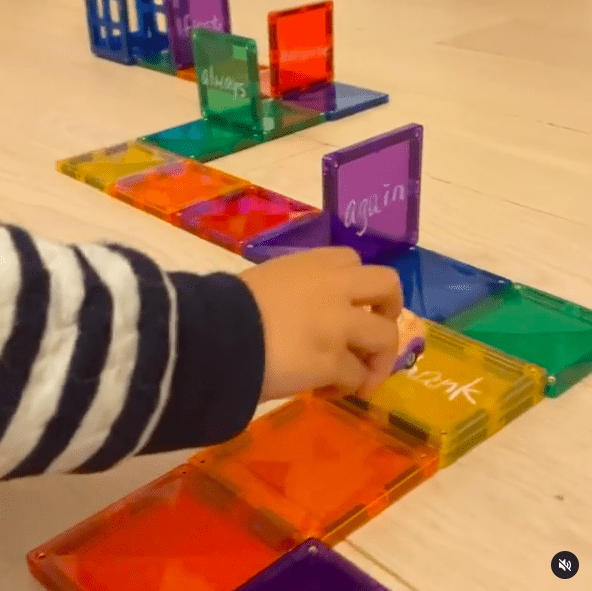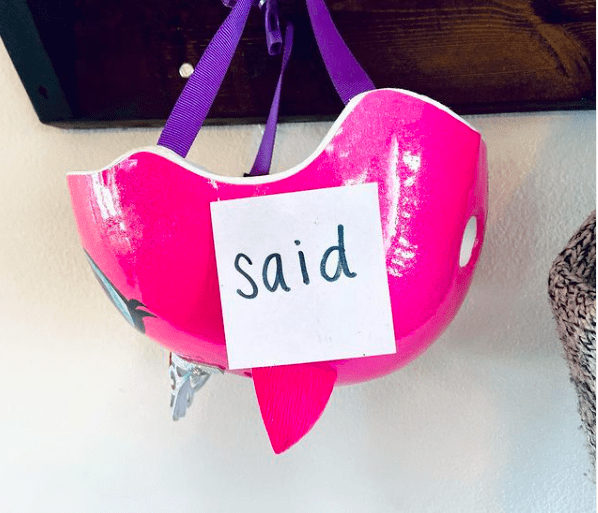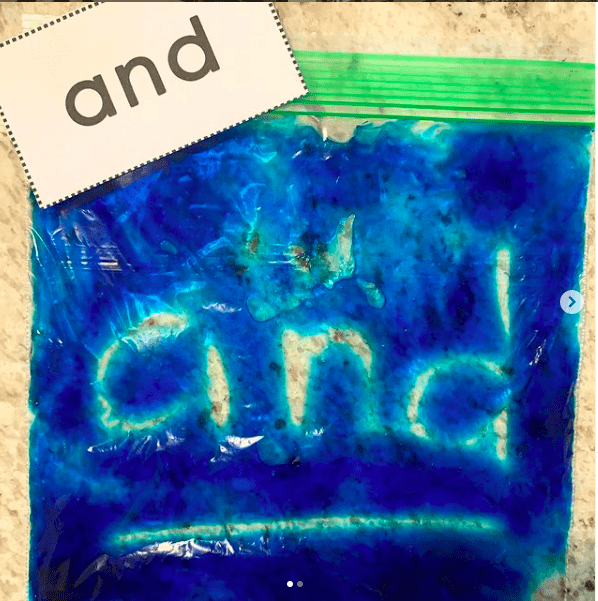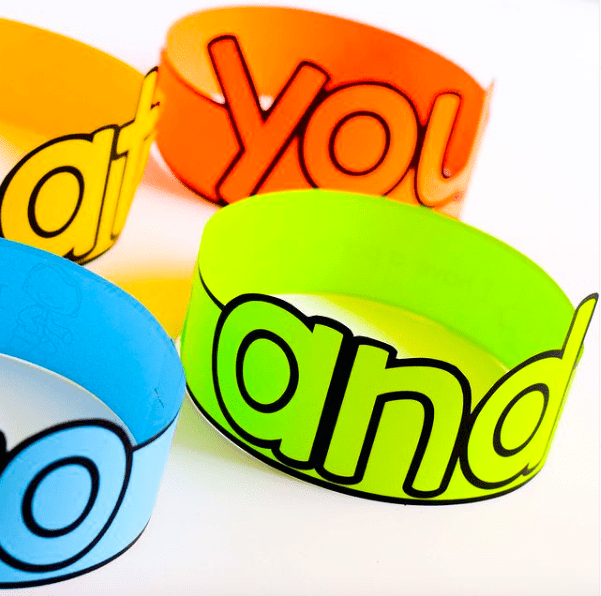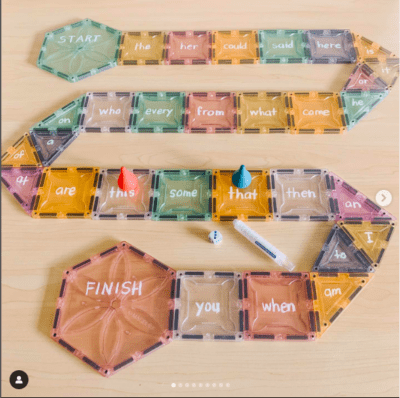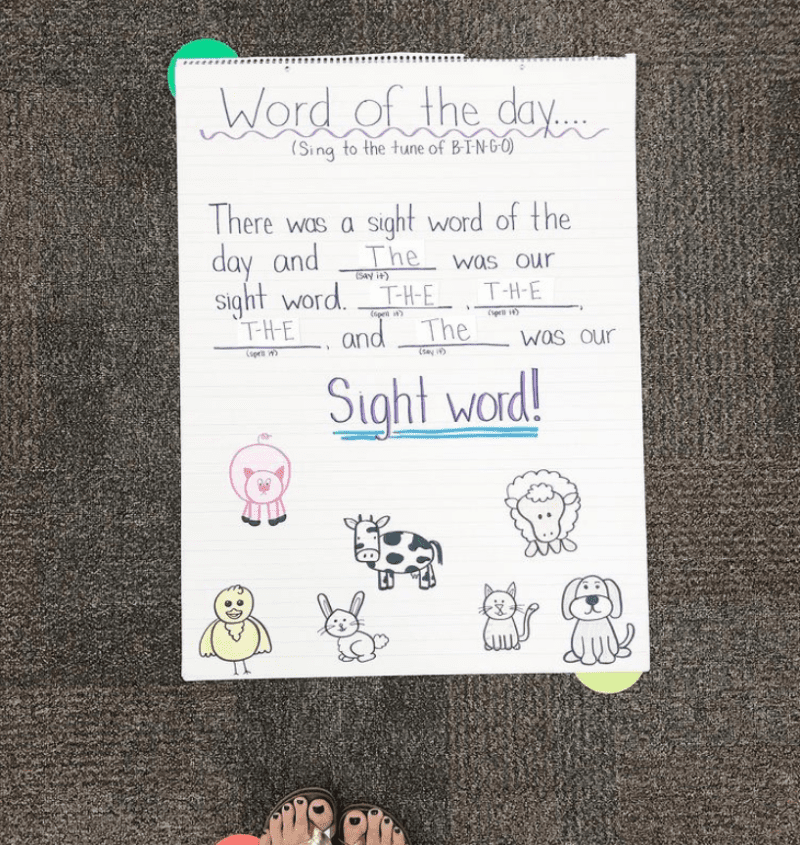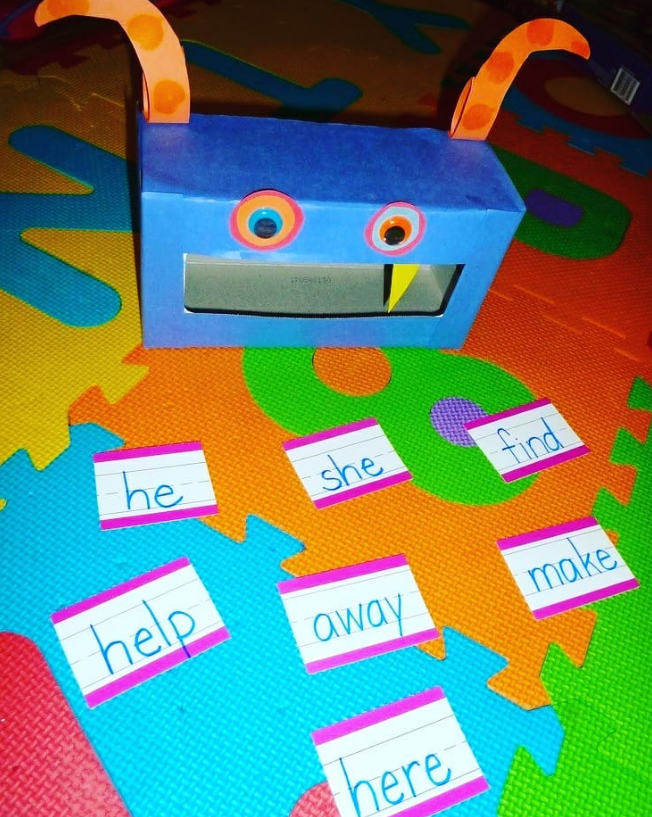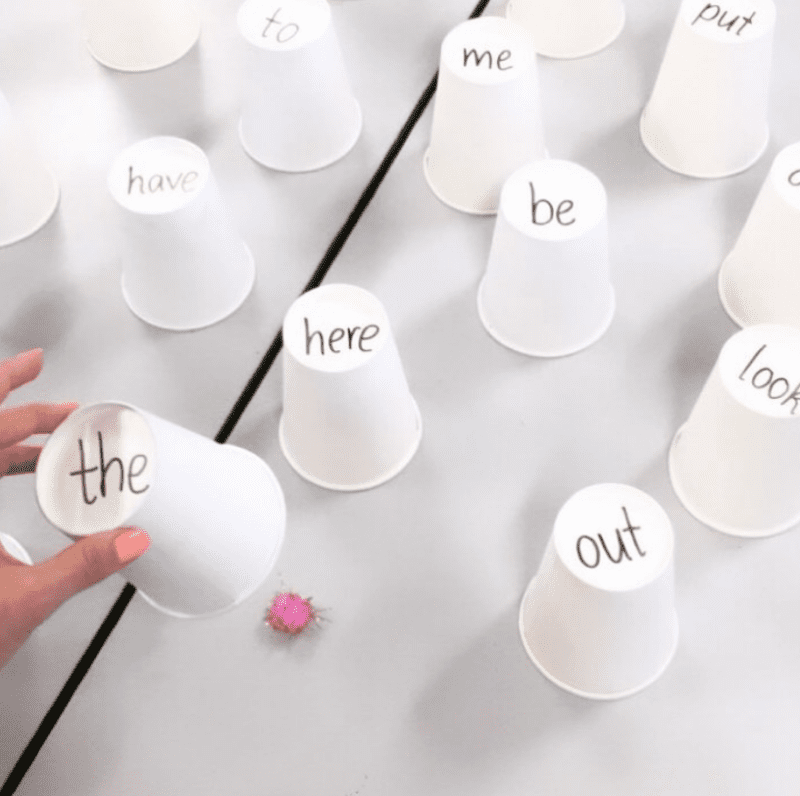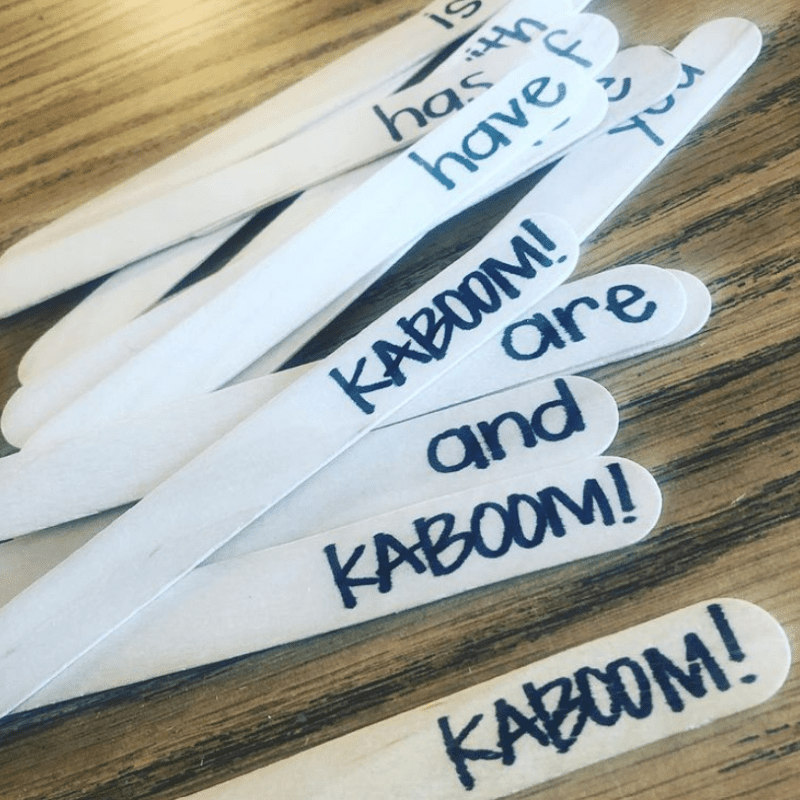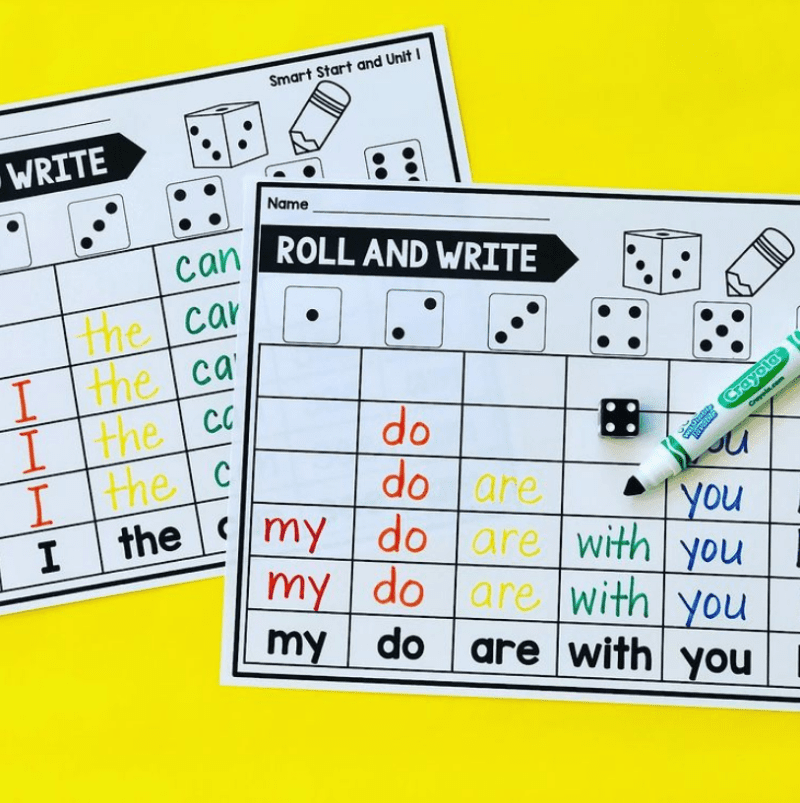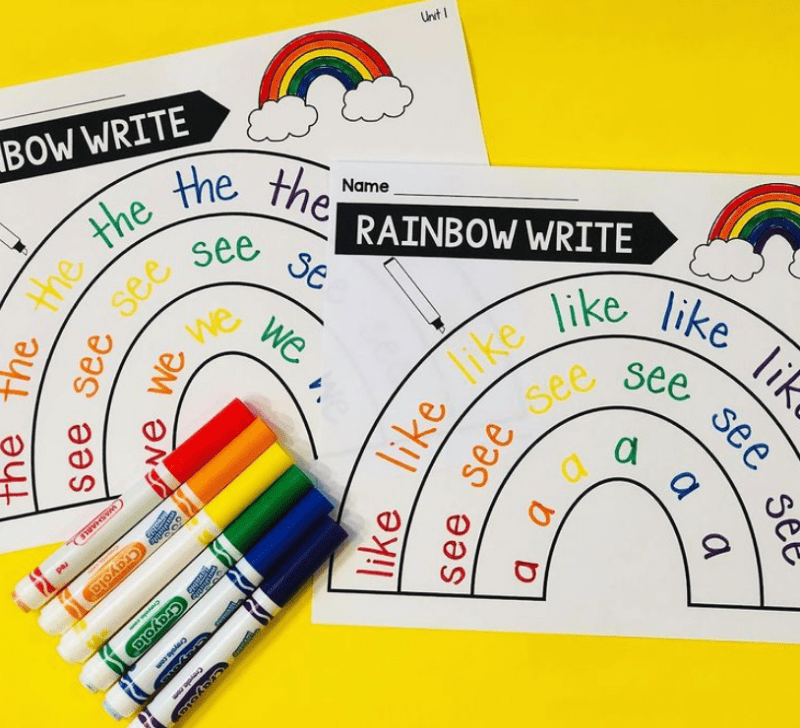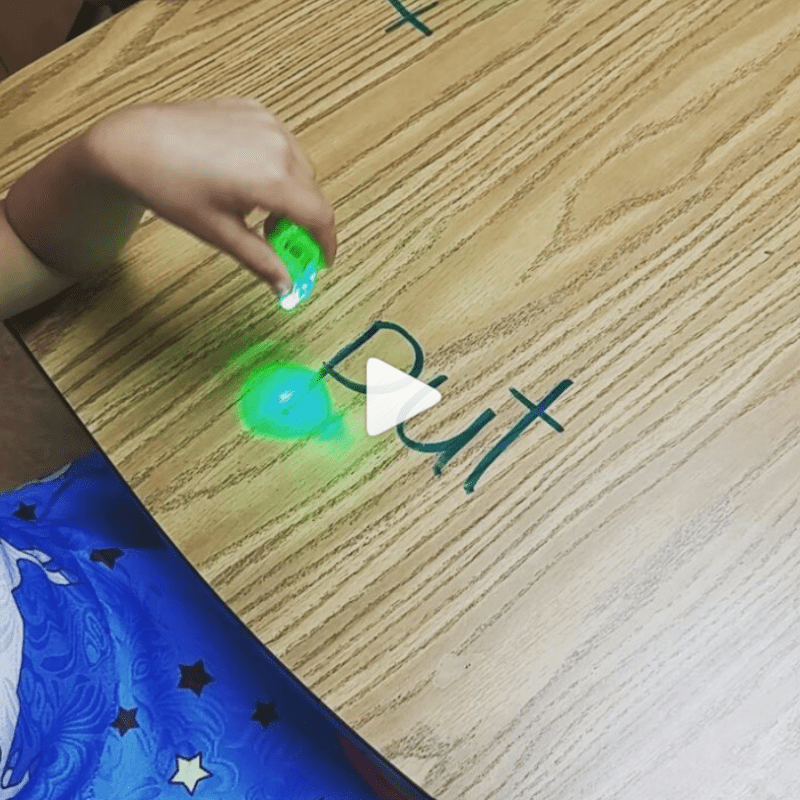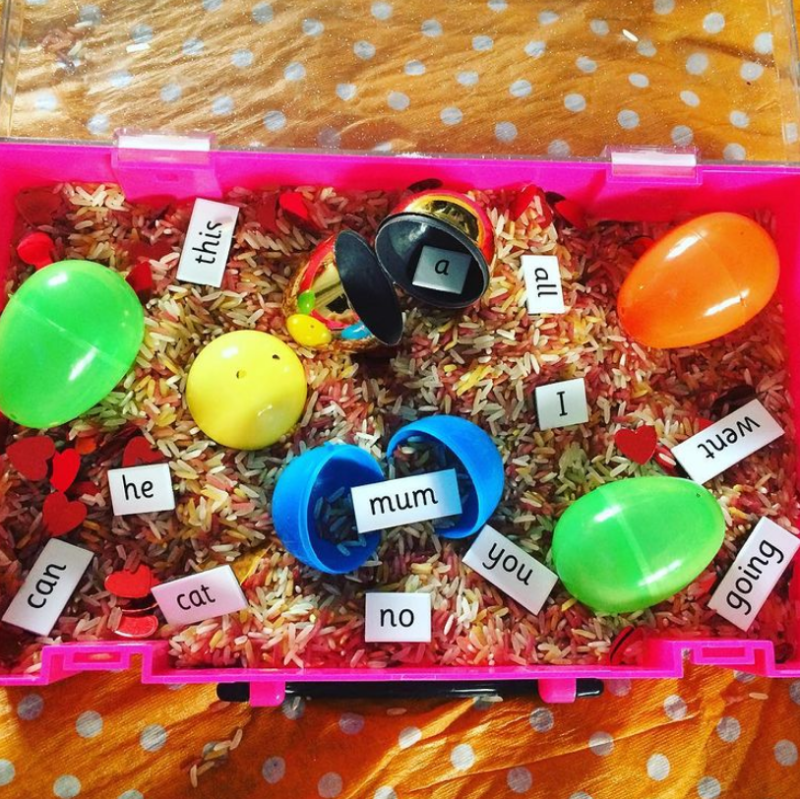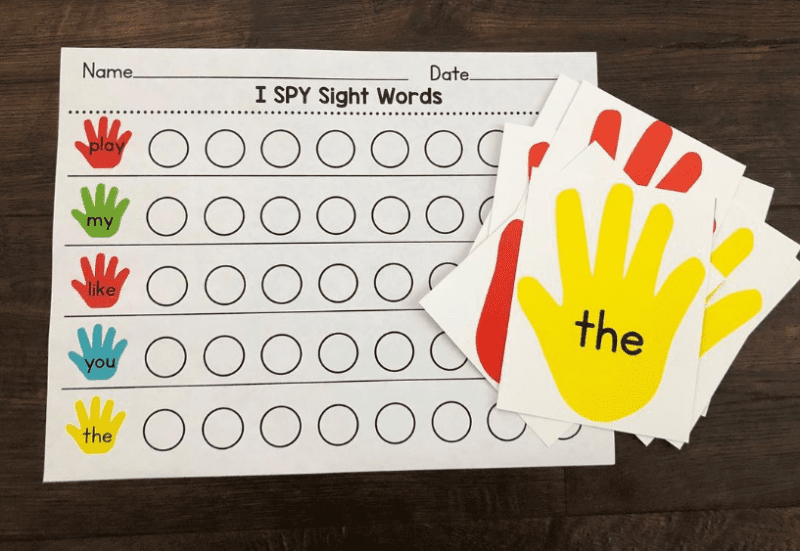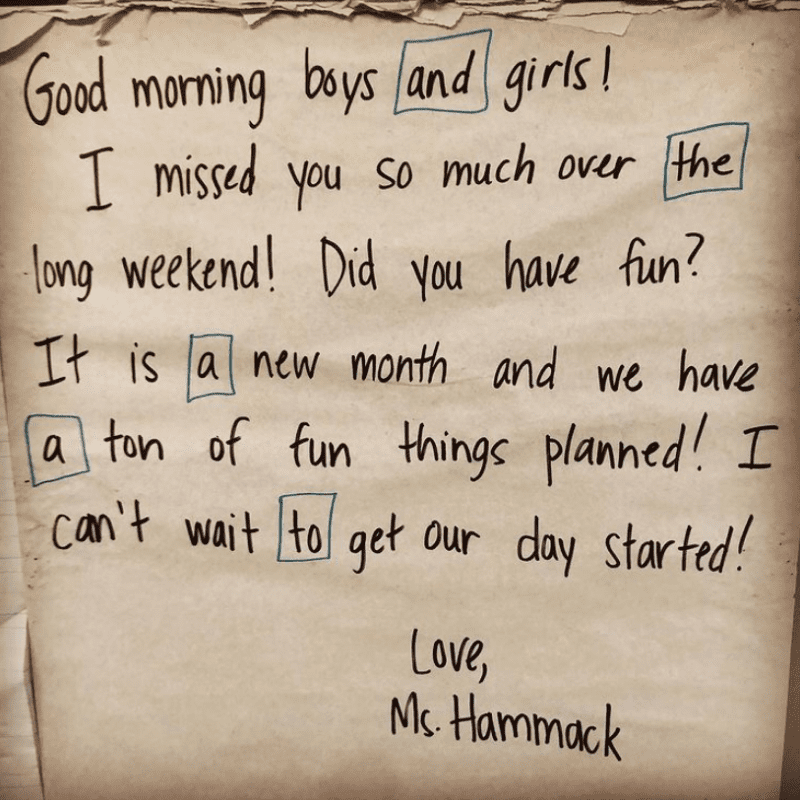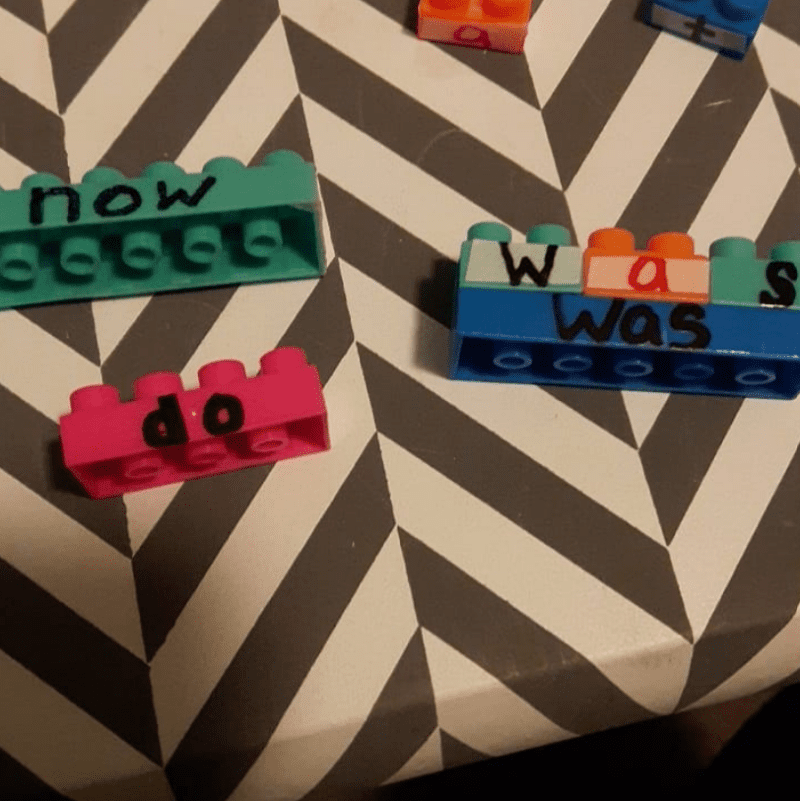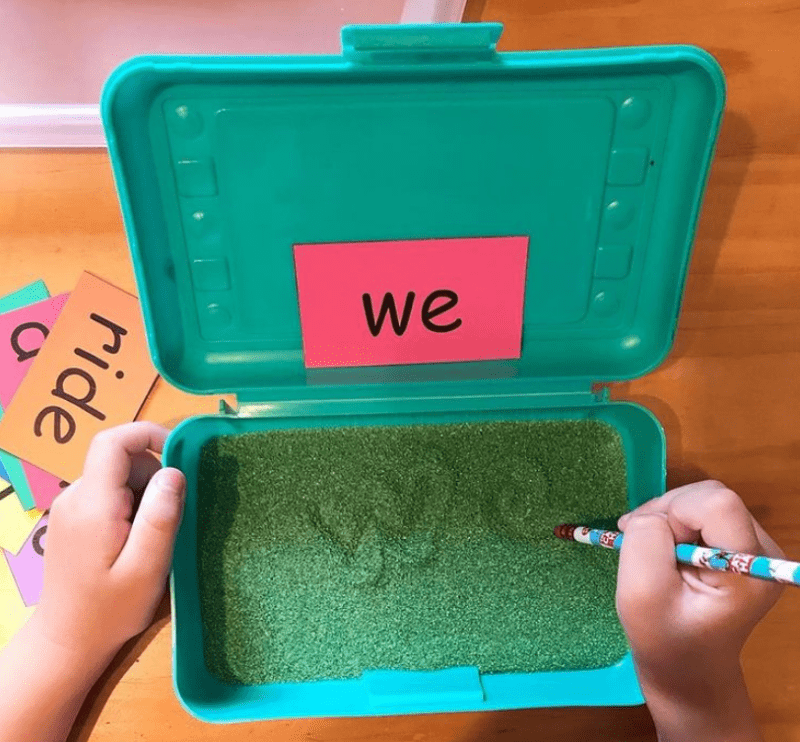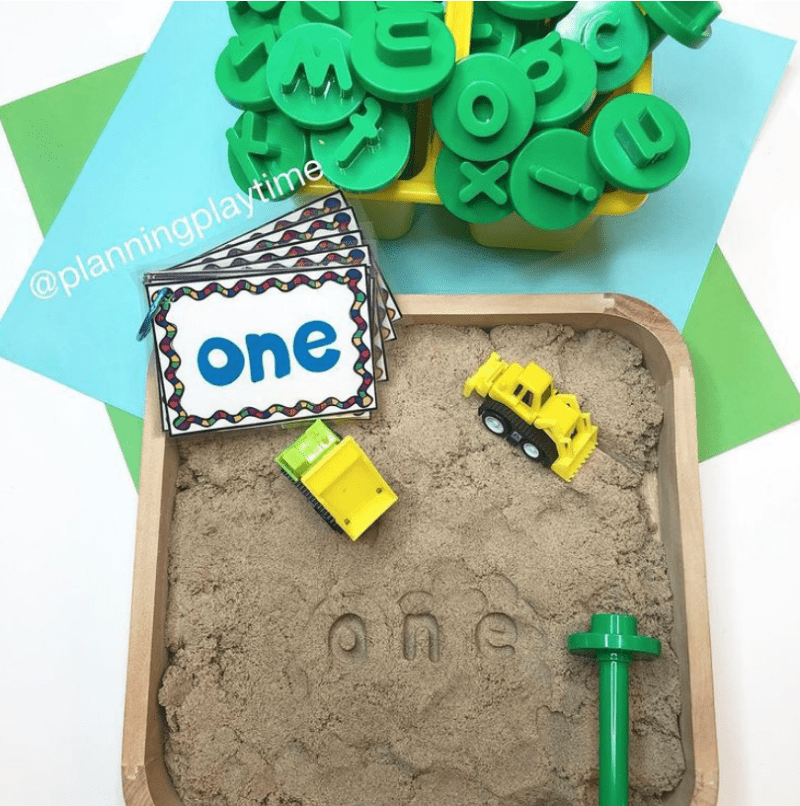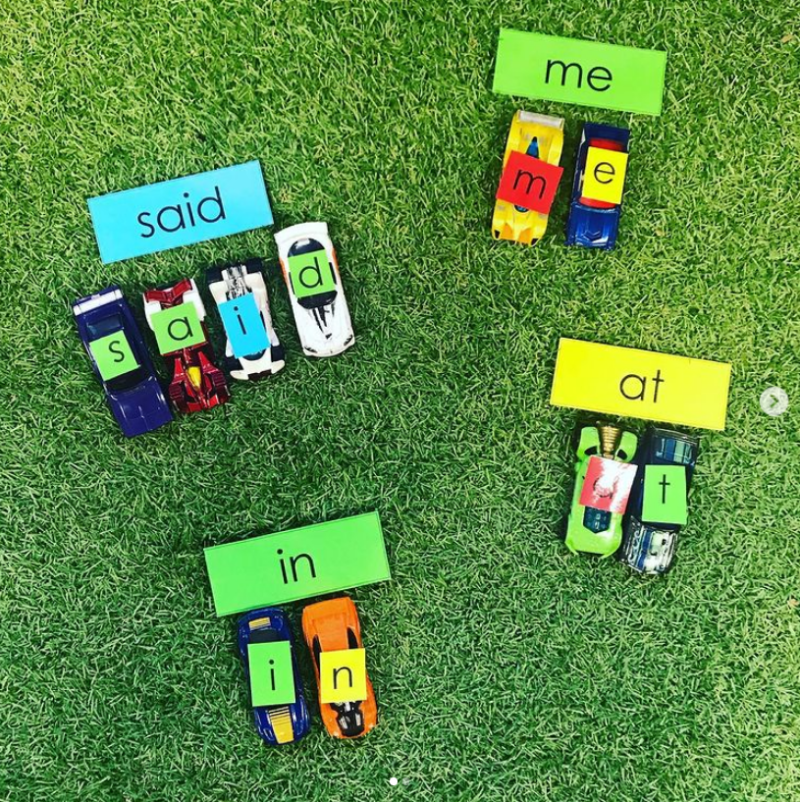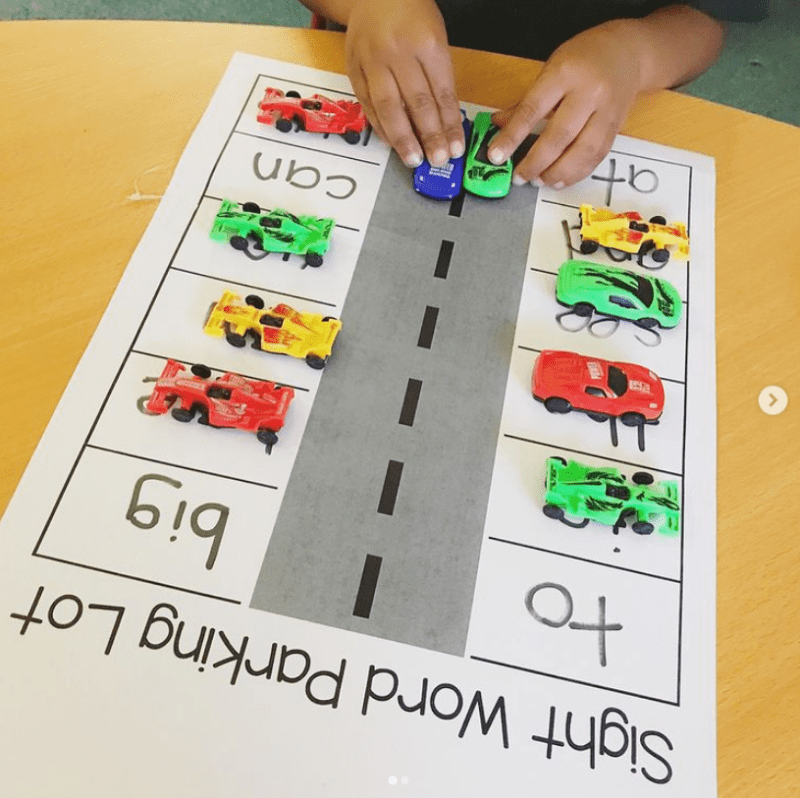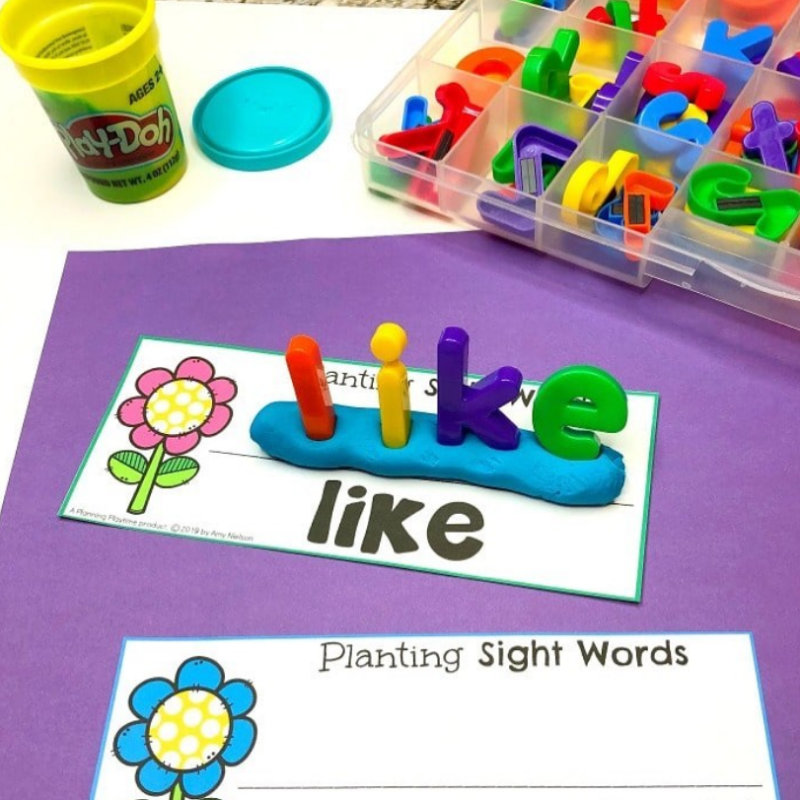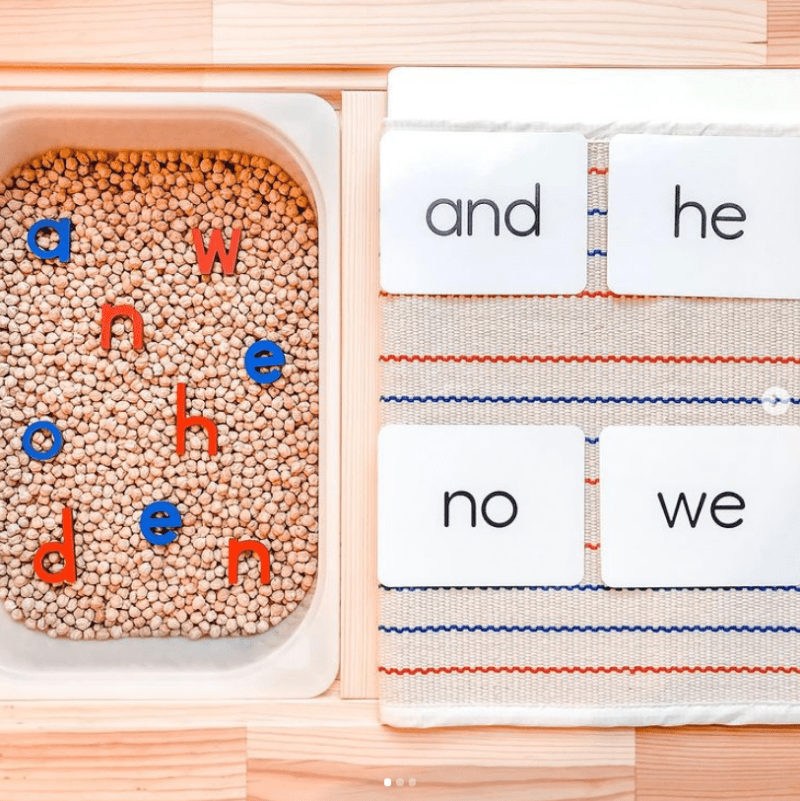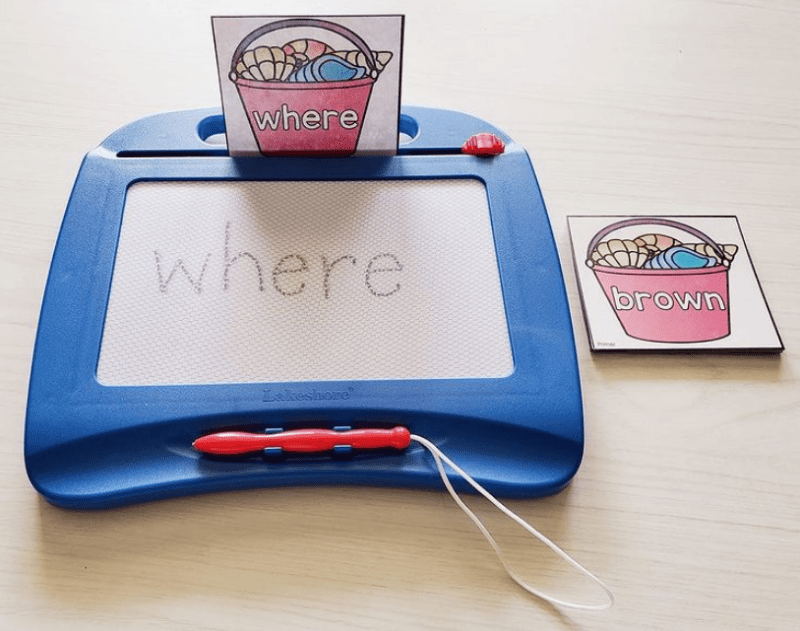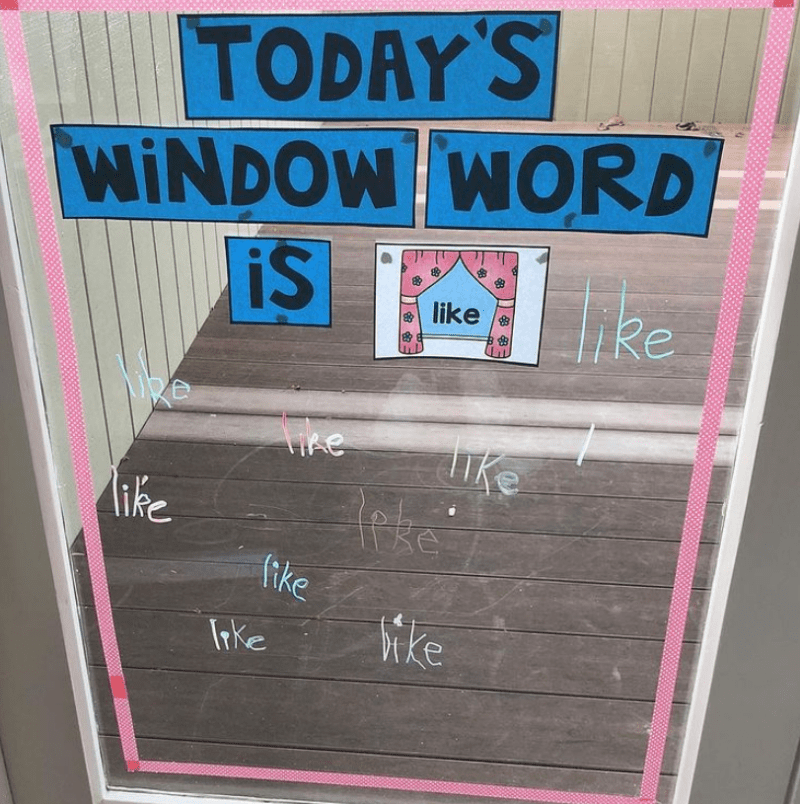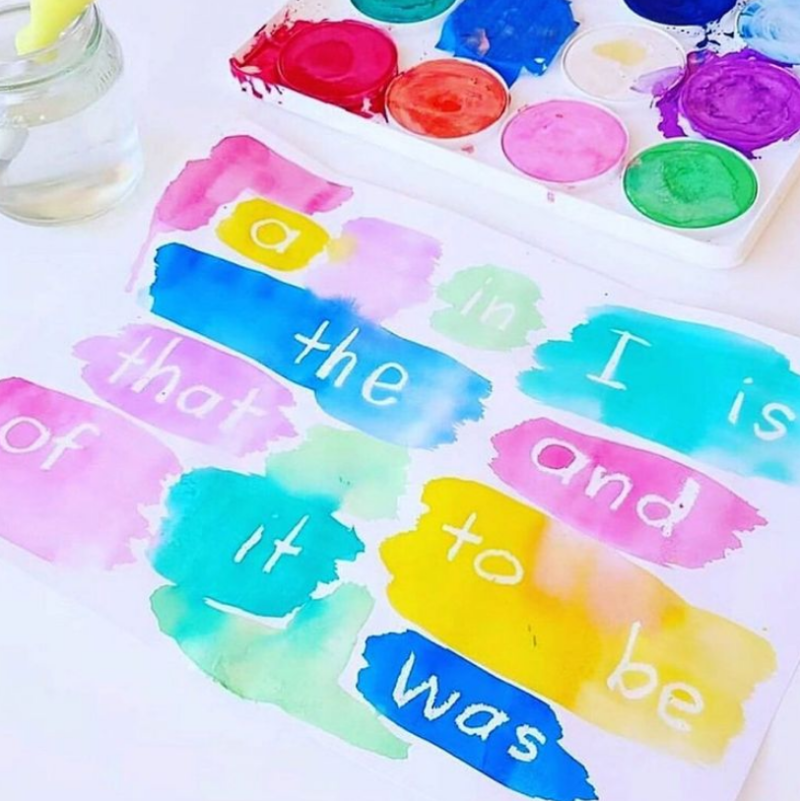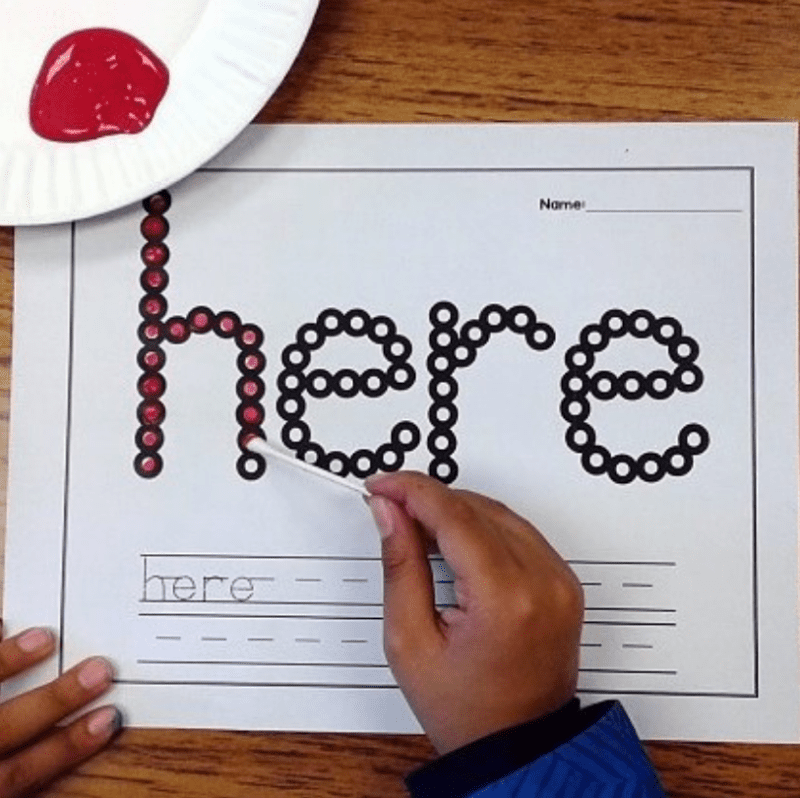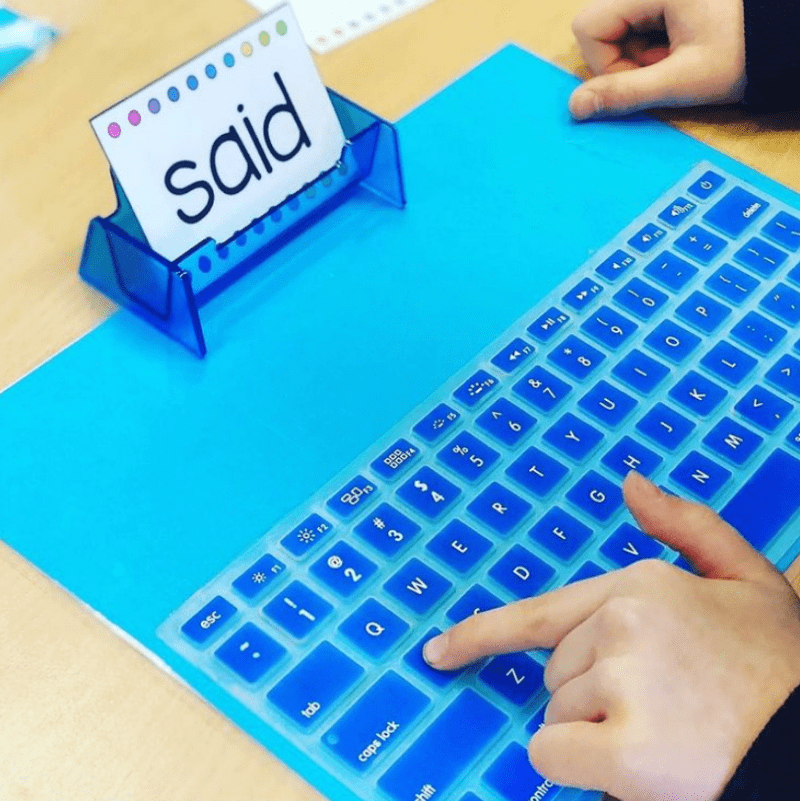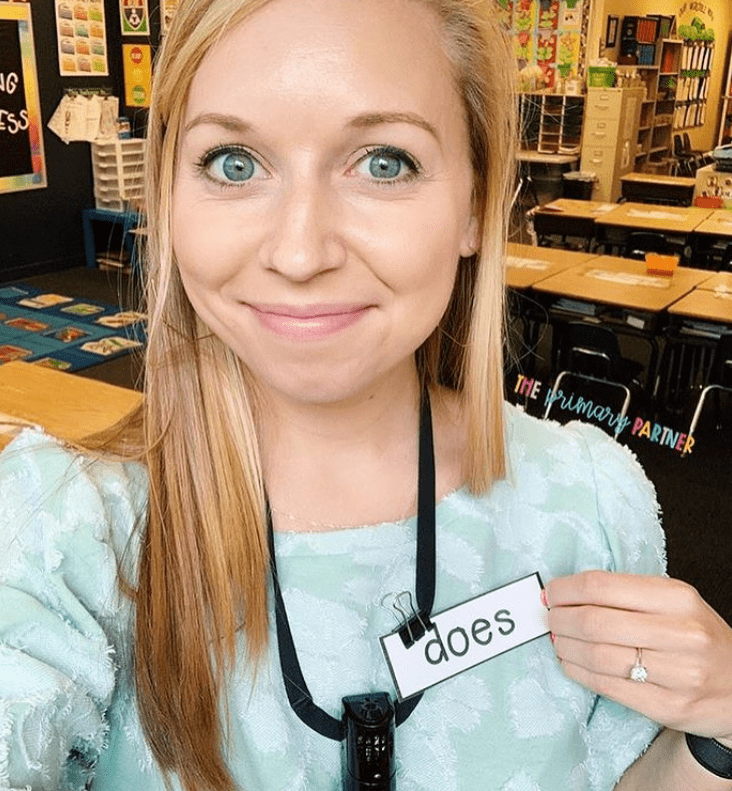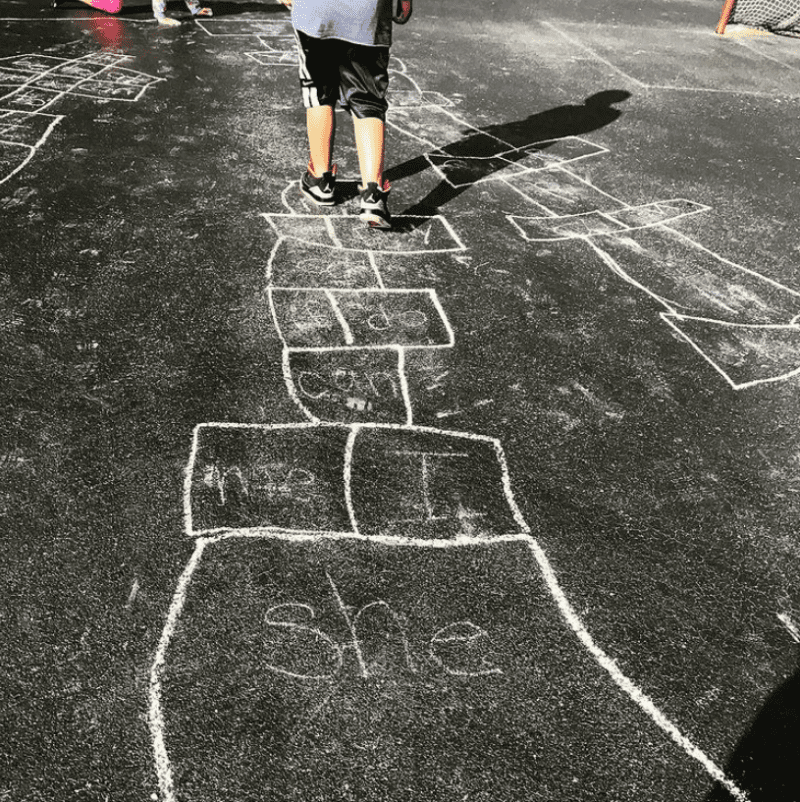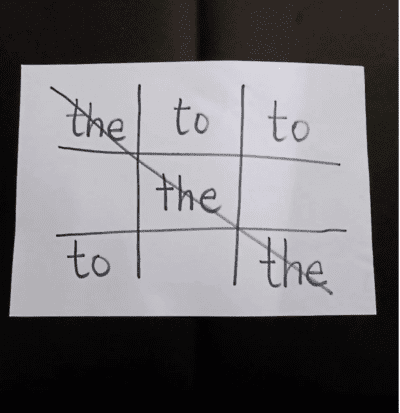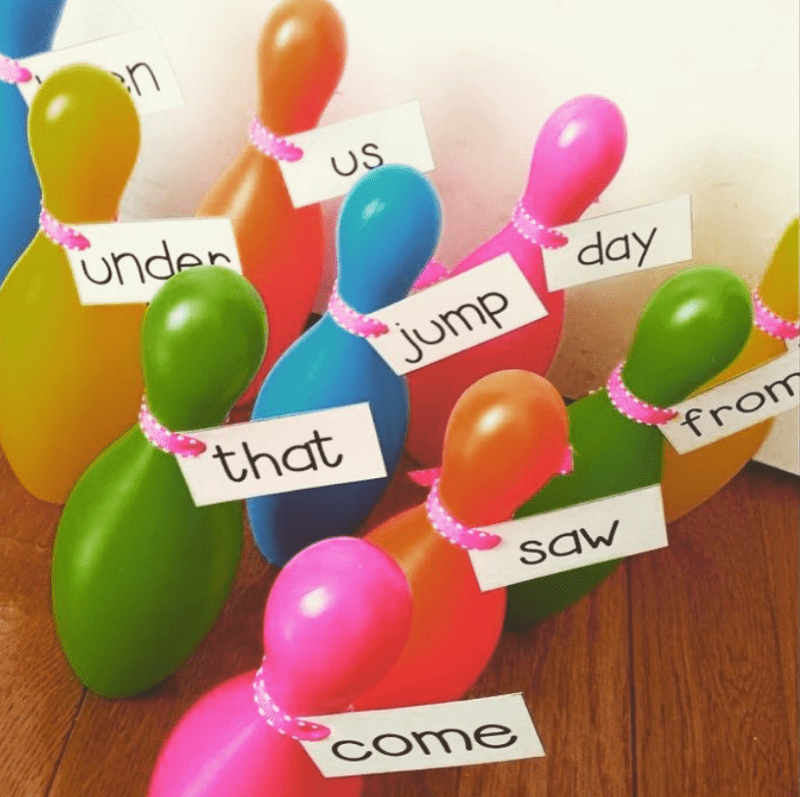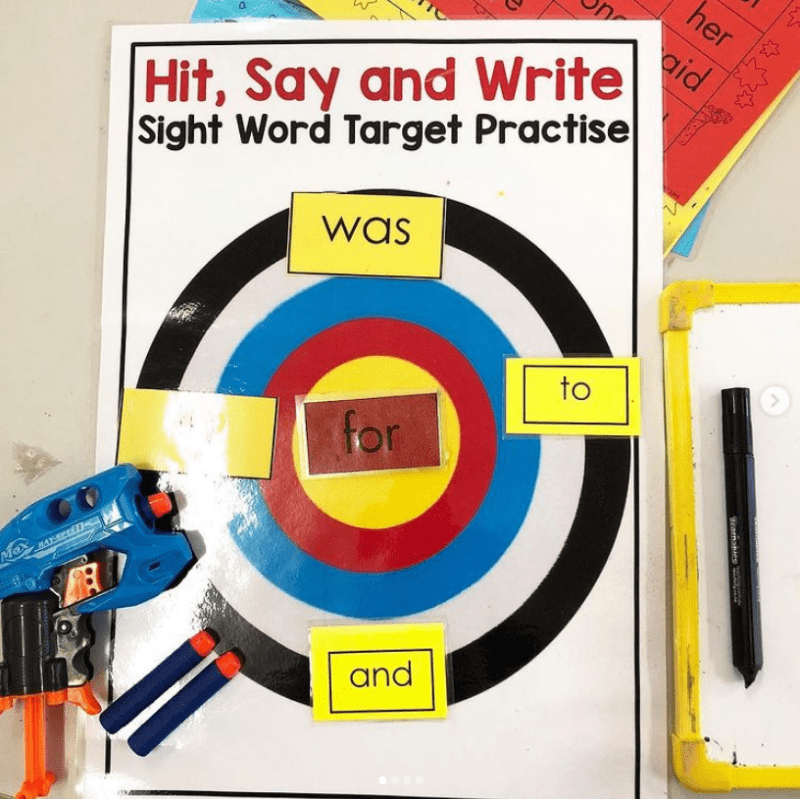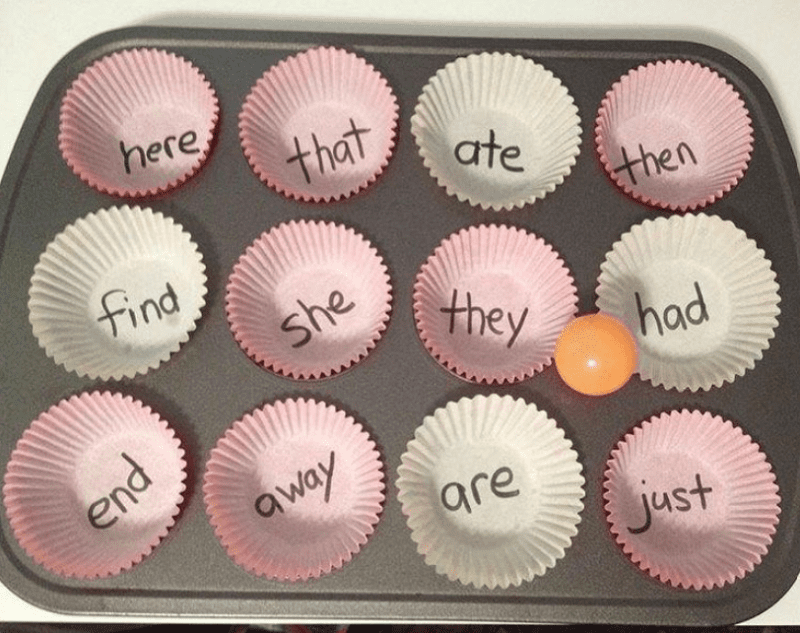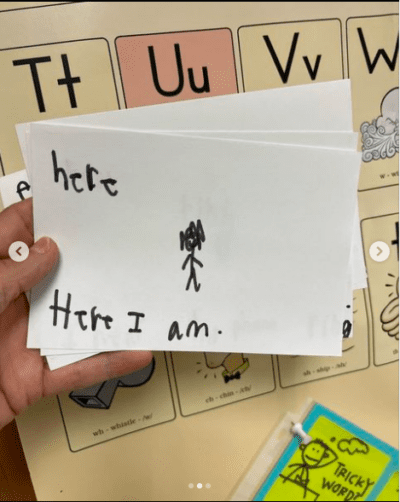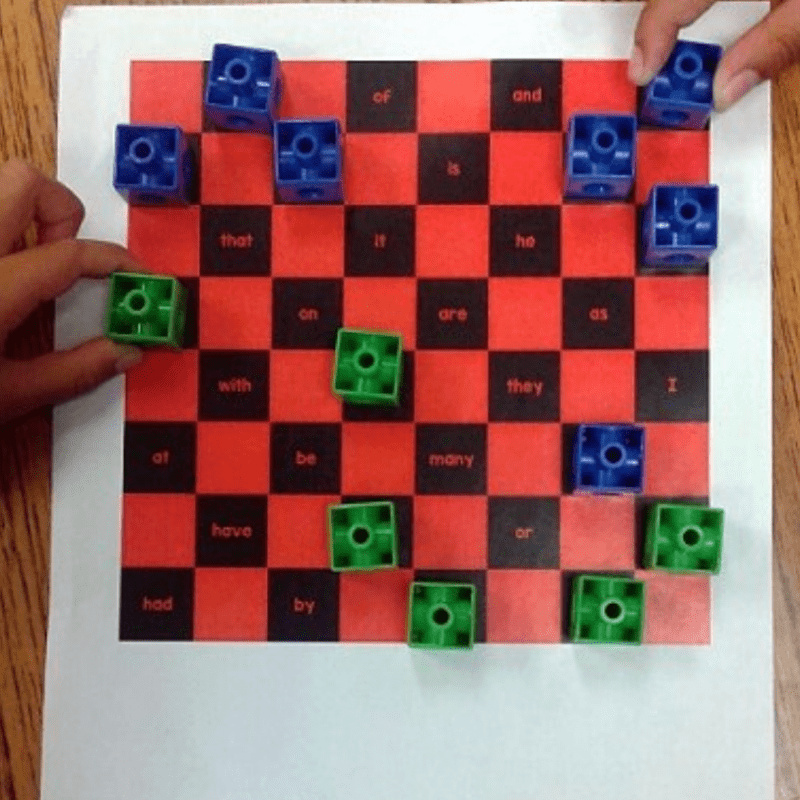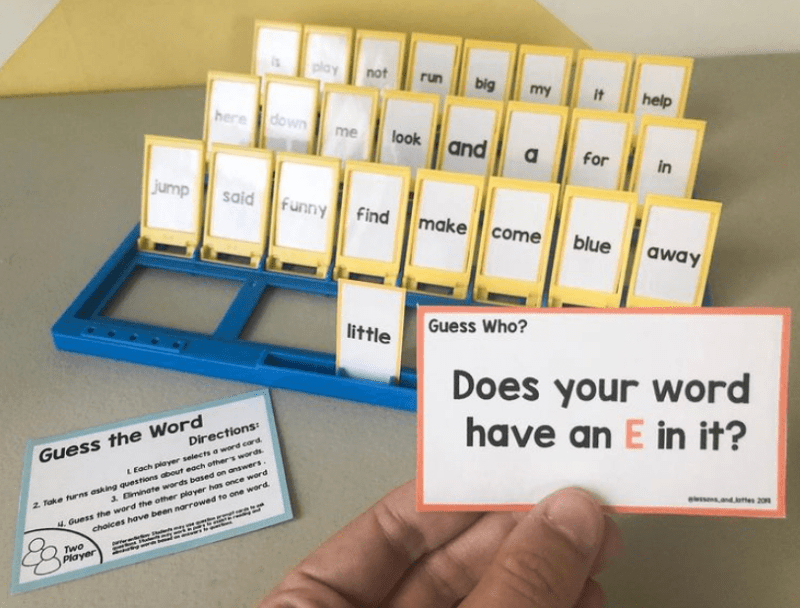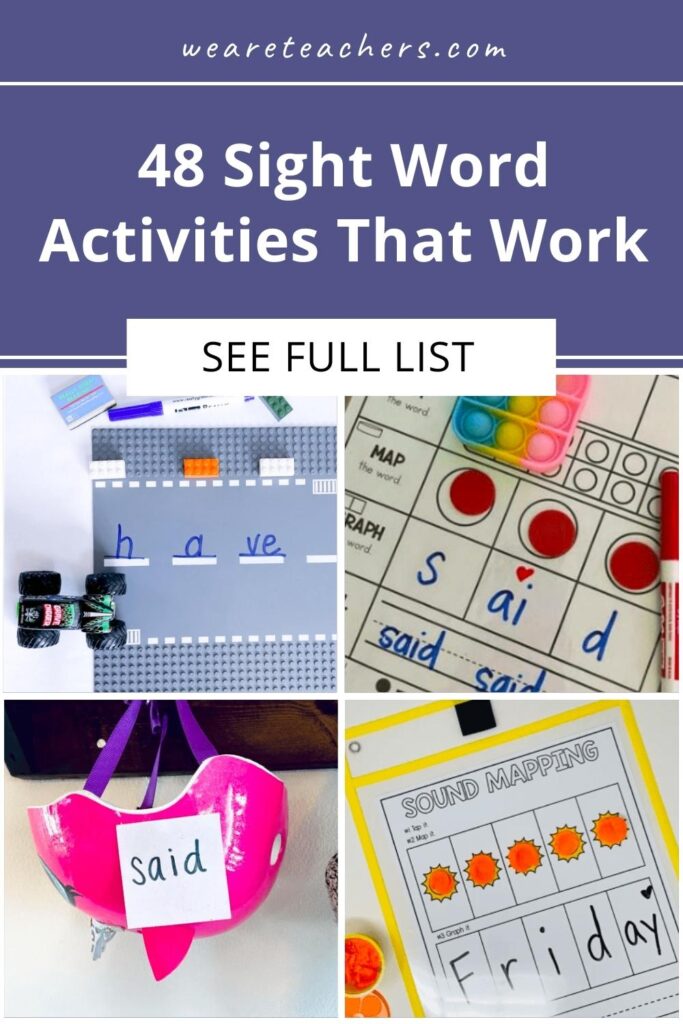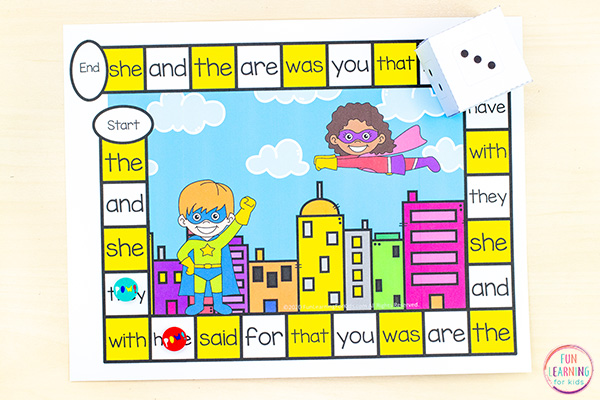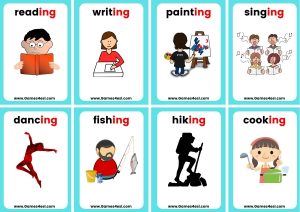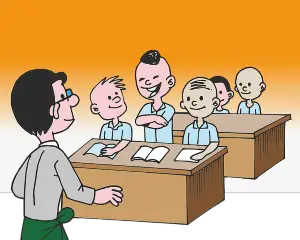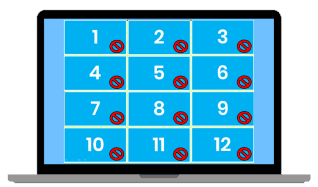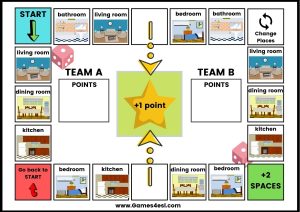Teaching vocabulary to preschoolers is not just about giving the definitions and some examples, but about creativity and fun techniques to practice the words with them. One of the best and practical ways to teach them vocabulary is using games. Here are some of them.
Categories
This game helps children to categorize the words in the columns, to get their meanings and to find a relationship between these words. For each category, you can use flashcards (fruit, vegetables, clothes, sports, etc) and give a list of different words to your kids (banana, skirt, apple, tomato, tennis, baseball, shirt, shorts, kiwi, etc.).

out the odd word
This game is a bit similar to the previous one because it is again related to categorizing. Here the teacher gives a list of words, asking kids to cross out one odd word from each line. For example:
- November, July, September, October
- Cold, snow, January, summer
- Monkey, banana, apple, kiwi
- Run, tennis, baseball, football
- Taxi, car, bus, house
How many?
Here all you need is to show a picture of different things (animals, fruit, vegetables) and to ask your younger learners to count how many things there are in the picture.
2-litre jar
This is a fun game to play with your kids. You show them a 2-litre jar and ask to come up with words that can be placed in this jar. For example, they can say coffee, candle, but they cannot say happiness or animal, because they cannot be placed in this jar.
I spy
One might call this game an old one, but my younger learners adore it. To begin the game choose an object and give some hints to your kids, such as: “I spy something that is big and blue”. The pupil that guesses the word takes a turn to spy something and let other kids guess.
Apple Pass
Get your kids to sit in a circle. You can use a real apple or a fake one. While you pass the apple to the next student, you must say one English word. The student then throws to another student and says a different English word. The student who fails to catch the apple or to say a word is out. And the game continues until you have one winner. It can be played with different categories, such as fruit, vegetables, animals, etc.
Touch
This game is all about giving some instructions. The teacher says: “Touch the board”, “Touch the chair”, “Touch something black”, etc. And young learners go around the classroom to find the appropriate objects and to touch them.
Basketball
Make a paper ball and prepare a box where your kids can throw an imaginary ball. Show a flashcard to the first student. If they say the right word and throw the ball into the box, they get two points. But if they fail to do one of these things, they get just one point. The person who gets the most points is the winner.
Pictionary
This is a nice activity for recycling vocabulary. You can play this game in groups. Tell one of the students a word and ask him/her to draw a picture of it on the board. The first student to guess, what the picture is, gets a point and takes a turn to come up to the board and to draw the next picture.
Line True or False
Put a line of tape on the floor and make appropriate signs for «True» and «False». Show a flashcard and say its word (you can say a wrong word). If students think that you have said the correct word they jump on to the True side, if not they jump on to the False side. The student who gives the wrong answer is out.
What games do you play with your preschoolers?

Image: Shutterstock
One of the most effective ways for young children to gain knowledge and develop crucial abilities is through play. So, if you’re in search of some fun and educational activities to do at home, word games for kids are the perfect option to keep your little one engaged. This game also makes learning at home enjoyable and lays the foundation for successful school learning. Moreover, word games assist your kid improve their vocabulary, spelling, grammar, writing, reading, verbal, and communication skills. Parents can study alongside their kids as children like having their parents participate in their learning. In this post, we present you with a list of fantastic word games that kids and adults may enjoy together. Read on.
Benefits Of Word Games
If you are wondering why word games for children are beneficial, here are some reasons:
- Develops vocabulary
- Improves fluency in the language
- Hones comprehension and reasoning skills
- Develops a love of words and reading
- Sparks their imagination and memory
- Improves their problem-solving skills
- Encourages creativity
- Serves as a great pastime for the family
- Stimulates the brain
- Improves concentration
There are many word games for kids that help them learn new words. These games are entertaining and educational, making them enjoyable for everyone involved.
We have listed the 20 best word games for kids. These games will ensure you and your children have a great time learning new words.
1. Hangman

Image: Shutterstock
Hangman is a fun paper and pencil guessing word game for kids that can be played between two players. More players can participate and take turns as well. It is a simple game where a stickman is hanged if a player fails to get the word right.
Age group: 6 to 10 years
No of players: 2
How to play:
- Take a sheet of paper and a pen and draw gallows.
- The first player thinks of a word and draws dashes above the gallows equal to the number of letters in the word.
- The other player starts guessing the letters one by one.
- If the letter the player says is in the word, the first player writes it in the corresponding spaces on the dashes.
- If the letter is not in the word, the first player draws one part of the stickman, starting from the head and followed by the body, hands, and legs.
- If the stickman gets completed before the second player guesses the word, that player loses.
- Switch sides and start again.
- Proper nouns or slang words are not allowed.
2. Name the animal
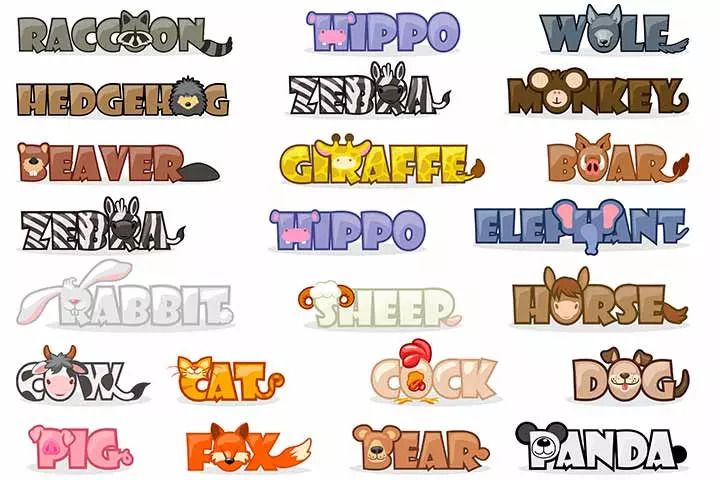
Image: Shutterstock
Name the animal is a multiplayer kids word game that can help teach your children animal names and improve their reasoning skills. This game also offers your child the opportunity to exercise their lateral thinking skills.
Age group: 4 to 7 years
No of players: 2 or more
How to play:
- You can be the host of the game.
- Make a list of common animals and a list of words that rhyme with these animal names.
- Call out each player and present them a rhyming word, and let them guess the animal name. You can say things like, “I rhyme with fog. I am a …..”
- The player who gets the maximum words correct is the winner.
- You can also teach them animal sounds by substituting animal names with their sounds.
3. I spy

Image: Shutterstock
I spy is one of the easiest games of the lot. All you need is your imagination and some eager players.
Age group: 4 to 6 years
No of players: 2 or more
How to play:
- Locate an object, and tell your child its first letter saying, “I Spy an object starting with the letter ….”
- Your child looks around and recognizes each object corresponding to that letter.
- Stop when they get it right and continue the game with the next player.
- You can also mention the color or shape of the object and let your child guess it correctly.
4. Make a word
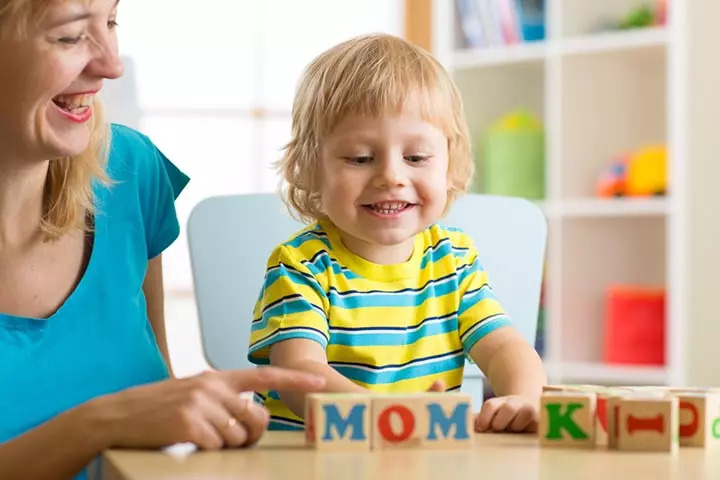
Image: Shutterstock
If your child is starting to learn new words, this word game for kids is useful. You can also play this game with older kids to make them learn difficult words and improve their memory. This game lays a solid foundation for playing advanced spelling games, such as Scrabble.
Age group: 4 to 12 years
No of players: 2 or more
How to play:
- You can play this game with younger children if you have magnetic letters, plastic letters, letter mats, or letter blocks.
- Give them a set of letters and ask them to make two- or three-letter words with them.
- For older children, you can play the game mentally or write a set of letters on a piece of paper and ask them to make as many words as they can from them.
- You can even play a timed version of the game with older children as they enjoy a good challenge.
5. Rhyming words

Image: Shutterstock
Rhyming Words game is a variation of Name the Animal. This word game for kids encourages your child to learn new words and helps hone their reasoning skills.
Age group: For ages 3 to 6 years
No of players: 2 or more
How to play:
- Name any animal.
- Ask your children to say the words that rhyme with the name of the animal, in turns.
- For example, when you say the word “dog,”your children should come up with words such as fog, hog, and log.
- Continue with a player until they run out of words and repeat the game with the next player.
6. Name, place, animal, thing

Image: IStock
You might remember playing this game as a child yourself. This game helps in expanding your child’s knowledge and memory.
Age group: 5 years and above
No of players: 2 or more
How to play:
- Give each player a sheet of paper and a pencil.
- Say a letter of the alphabet and start a timer.
- Each player must write the words of a name, place, animal, or a thing starting with that letter. For example, if the letter is A, a player may write, “Alex, Australia, Ape, Apple,” under each of these categories, respectively.
- You can assign different letters to different players or the same letter to each one.
- You can include other categories as per your convenience.
7. Hink pink
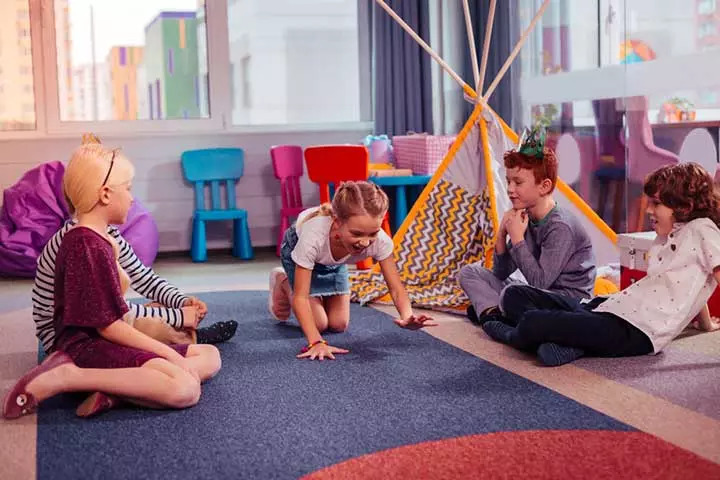
Image: Shutterstock
Children love this game. This word game for kids is designed to maximize fun while learning new words and their meanings. The game can help improve your child’s ability to solve crossword puzzles and cryptic crosswords.
Age group: 4 to 12 years
No of players: 2 or more
How to play:
- Ask each player to come up with a set of rhyming monosyllabic words, e.g., fat rat.
- Help them make a clue about their words. In this case, the clue will be “a rodent that is not thin.”
- Each player says their clue aloud, and the others try to guess what the rhyming words are.
- If the children are older, you can play Hinky Pinky (two-syllable words) or Hinketty Pinketty (three-syllable words). You can even make different combinations between different syllabic words.
- Ask the children to act out the words too so that all of you have lots of fun while the children learn difficult words.
- Here are some more words to get you started: Thin Pin, Big Pig, Tan Pan, Fan Man.
8. Guess the correct word
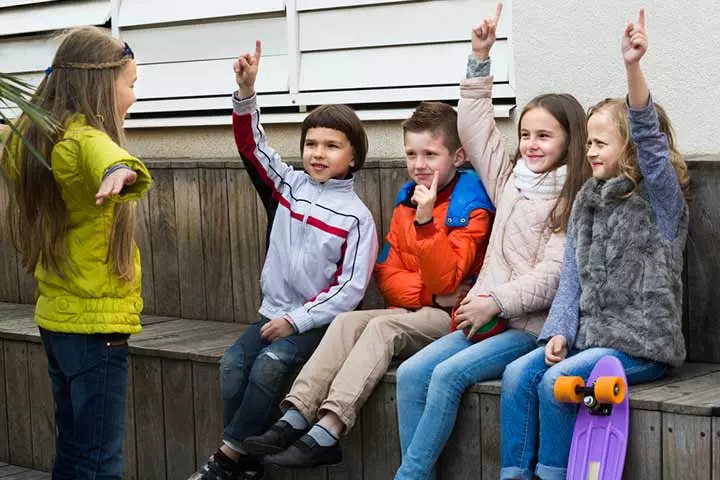
Image: Shutterstock
This word game for kids, if played mentally, is an excellent way to boost your child’s memory. It is a simple game and can be played with pencil and paper if you want to keep score.
Age group: 6 years and above
No of players: 2 or more
How to play:
- The first player thinks of a word and announces its first letter and the number of letters in the word to the others. If the player has thought of the word “Bananas,” they should say B and 6.
- The other players have to guess the word using these clues.
- If a player says another word but it has some matching words with the original word, the first player will say that the word is wrong but there are matching letters in the correct places or the wrong places.
- The next player uses these clues to make the next guess.
- You can keep the words simple or difficult according to the age of the children.
- As for the example of Bananas:
Player 2: Bullock
Player 1: That is incorrect
Player 3: Bahamas
Player 1: That is incorrect, but the As are in the correct place,
and so on.
9. Word hunting
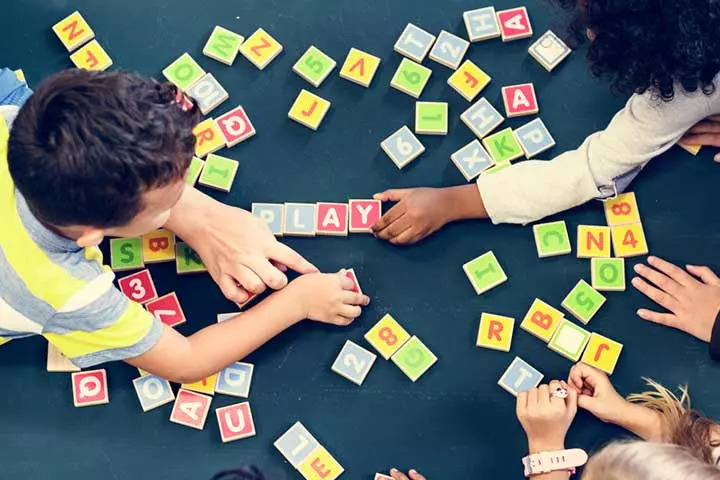
Image: Shutterstock
If your child is just learning the alphabet, this is an easy game to play. However, you can make some minor changes and tweak it for older children.
Age group: 4 to 7 years
No of players: 2 or more
How to play:
- Scatter magnetic letters, plastic letters, or letter blocks on a table.
- Ask your child to pick up a letter from the lot.
- For older children, you can write three- or four-letter words on little chits of paper and do the same procedure as above.
- For children who can read, you can ask them to pick words they see outside shops, etc.
10. Change one letter
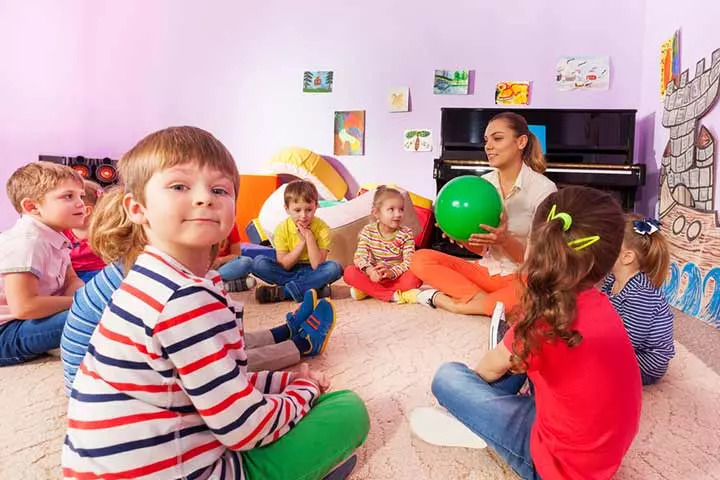
Image: Shutterstock
This is a great word game for school children. The game promotes out-of-the-box thinking and allows your child to come up with new words and even their meanings.
Age group: 5 to 10 years
No of players: 4 or more
How to play:
- Begin with a short word that has three, four, or five letters (according to the age of the children).
- Ask the children to take turns in calling out new words by changing just one letter of the previous word. E.g., park – part – dart – dark / mark – mare – mart / cart – care – case – cast – mast (and so on).
- You can set a timer or divide the players into teams to make the game more exciting.
11. Call my bluff
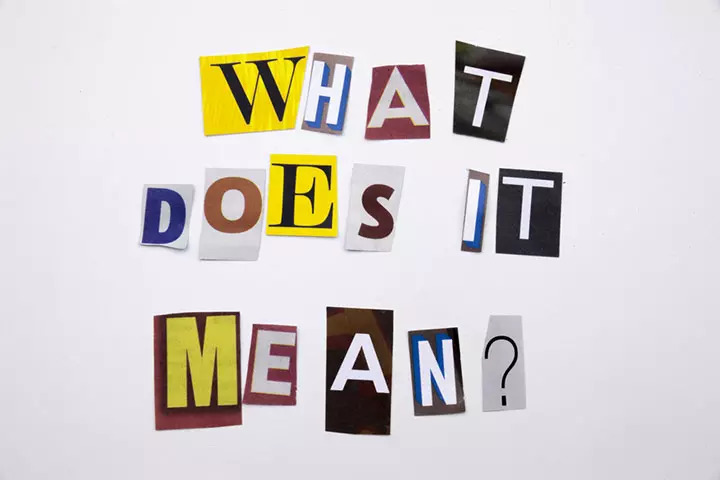
Image: Shutterstock
Call my bluff is commonly played at sleepovers and during picnics and is an excellent word game for older children.
Age group: 8 years and above
No of players: 4 or more
How to play:
- Divide the children into teams.
- Give them a set of words that are common but unfamiliar to them.
- Ask each team to look up the meaning of each word, and make up two wrong meanings for each word.
- Each team asks the other team the meaning of a word and gives them the three options.
- If the opposite team guesses the correct meaning, they get points. If they don’t, the team that asked the meaning gets the point.
- For example, let us take the word “Bewildered.” You can give three choices (a) to be left in the wild, (b) shocked or surprised, and (c) out-of-control behavior.
12. Unscramble the words
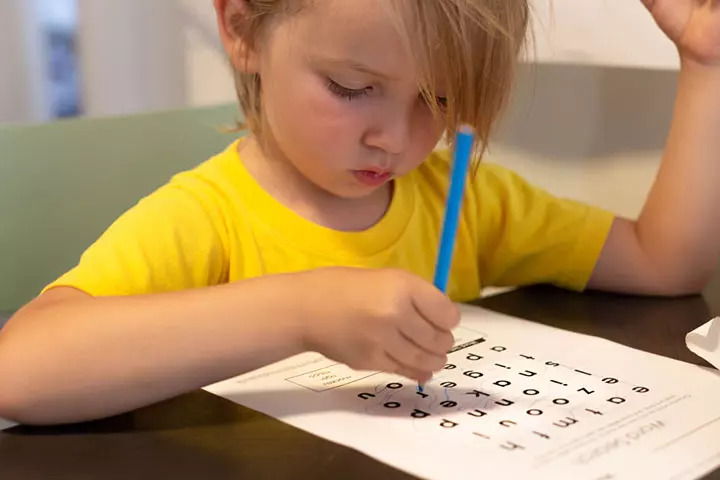
Image: Shutterstock
Let your children put on their thinking caps and play this game. The word game makes your child think and helps stir their imagination and improve their reasoning skills.
Age group: 5 years and above
No of players: 2 or more
How to play:
- Think of a word and write it down on paper but in a scrambled form.
- Your child has to think and arrange the word in the right sequence.
- You could even give clues so that they can unscramble the word faster.
- You could also write down a set of scrambled words, set the timer, and ask them to solve as many as they can within the allotted time.
13. Tell me a story

Image: Shutterstock
Children are incredibly imaginative. Children, as young as three years old, start making imaginary stories. You can play this game to fire your child’s imagination.
Age group: 5 years and above
No of players: 2 or more
How to play:
- Start a “story” with a sentence.
- The next player should say another sentence and continue the story.
- As the story grows, it becomes hilarious and absurd.
- For example, you start with the sentence, “In a village, there was a man named Joe.” The next player can say, “He wore a red shirt every day,” and the next player may say, “One day, a bull charged at him,” and so on.
14. Words in a word
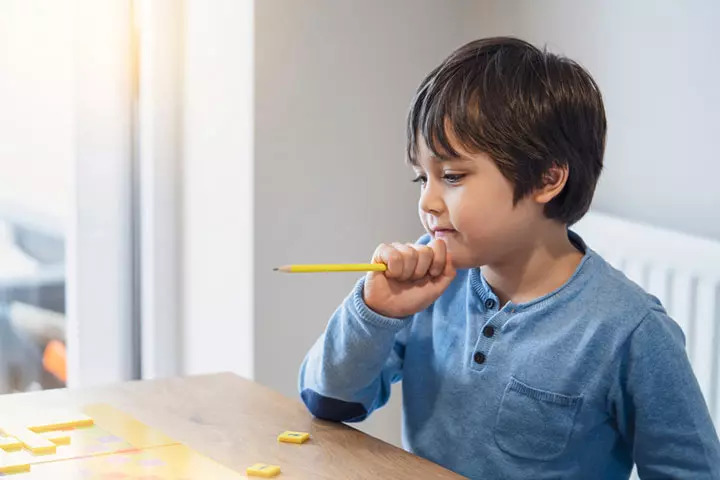
Image: Shutterstock
This is one of the most popular word games for kids and one of the best word-building games of all time. It is useful in improving your child’s English, if it is not your native language. You might have played this game in your childhood. It is now your children’s turn to play the game and keep the tradition alive.
Age group: 5 years and above
No of players: 2 or more
How to play:
- Think of a long word. A popular word choice for this game is “Constantinople.”
- Ask your child to write words starting with each letter in the word. They should use the letters contained in the word only.
- For example, Constantinople can have words such as con, cot, on, oil, no, nap, sit, and sip.
- You can set a timer and ask your child to write down as many words as they can within the given time frame.
15. I’m going on a picnic
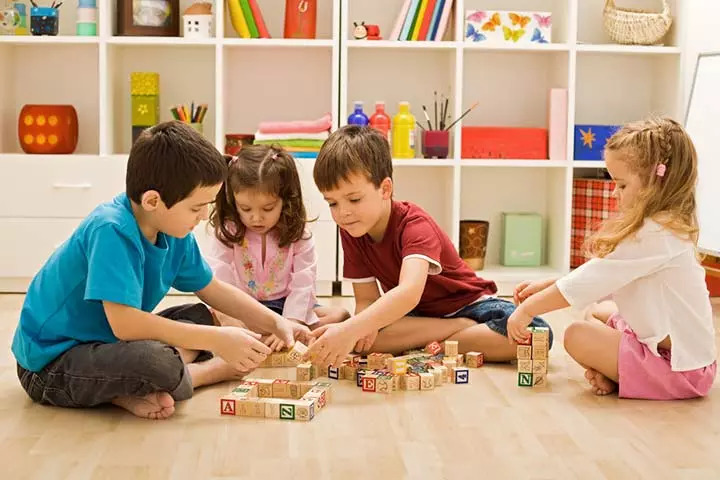
Image: Shutterstock
This game is for older children. It helps hone their creative skills and improves their memory. The word game is usually played in classrooms, but they can play it at a sleepover or even with you as a family game.
Age group: 5 years and above
No of players: 3 or more
How to play:
- The first player starts by saying, “I’m going on a picnic, and I will bring a ….”.
- The next player adds an item to the list and repeats the words.
- Each player has to repeat the items named in the exact sequence.
- If a player forgets a name or the sequence, they are out of the game.
- You can either start the game all over again or ask the next player to pick up the sequence and continue.
- For example, the game goes as follows:
Player 1: I’m going on a picnic, and I will bring a cookie.
Player 2: I’m going on a picnic, and I will bring a cookie and a Popsicle.
Player 3: I’m going on a picnic, and I will bring a cookie and a Popsicle and a bottle of juice, and so on.
16. Crosswords
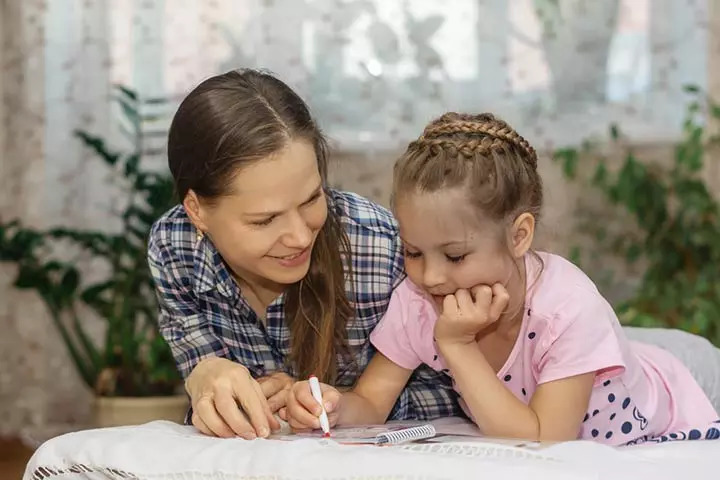
Image: Shutterstock
Solving crosswords requires practice and a lot of patience. The game will not only teach your children new words but also develop their deductive reasoning skills to a great degree.
Age group: 6 years and above
No of players: 1
How to play:
- Draw a grid with white and black squares and number each row and column.
- Then, write a set of clues at the bottom of the grid with the corresponding row or column number.
- Ask your child to solve the crossword.
- You can set a timer to make the game challenging.
- You can get some printable crosswords with clues easily on the Internet (you will find some free and printable crosswords in this link). Crosswords regularly appear in newspapers and magazines.
17. Word quest
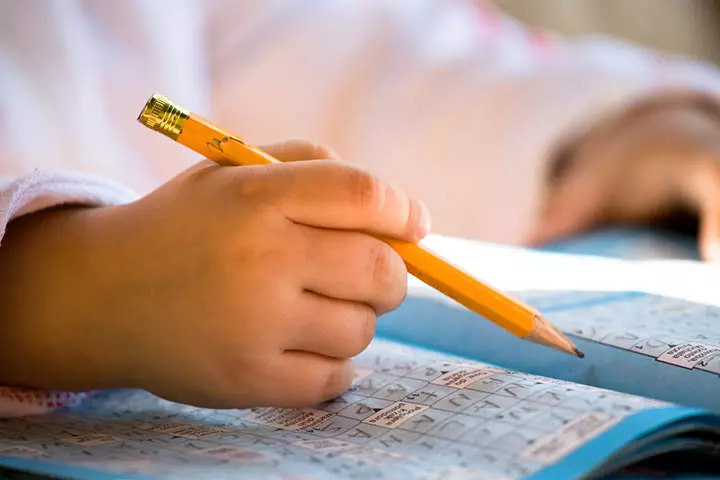
Image: IStock
Word quest is a word game for older kids. The game involves searching for words using single letters and makes your children use their deduction skills.
Age group: 5 years and above
No of players: 2 or more
How to play:
- Draw a 10×10 or 12×12 grid on a sheet of paper and divide it into squares.
- Write various words below and to the side of the grid.
- Write random letters in random squares.
- Ask your child to fill in the grid using the words you have written outside the grid.
18. Consequences

Image: Shutterstock
This word game helps stir the imagination and encourages creativity. The game works well with both children and adults.
Age group: 5 years and above
No of players: 2 or more
How to play:
- The first player writes down a sentence on a sheet of paper and passes it on to the next player.
- The next player writes the next sentence and passes it on.
- Once all the players are done with adding their sentences, you can read out the story.
- You can also write 4–5 sentences with open endings on a sheet of paper and hand them over to each player. Each player writes their version of the story and reads it aloud at the end of the game.
- For example, you can write, “There was a man named …….. He …………. a woman named ……………. They went to …………. He said, “…………………” She said, “……………………” And then, ……………..” and so on.
19. Scrabble
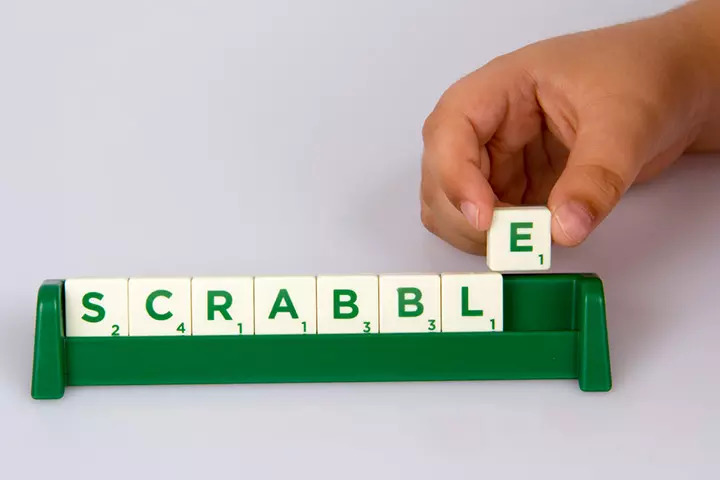
Image: IStock
Scrabble is a popular classic word game for kids. If you want your child to learn new words, this is one of the best games.
Age group: 6 years and above
No of players: 2 or more
How to play:
- Get a scrabble boards.
- Set it up and read the rules.
- The number on each letter tile tells you how many points it’s worth, and the squares on the board tell you how many points you scored.
- The player who gets the maximum score is the winner.
- After a game of Scrabble gets over, the board looks similar to a crossword.
20. Pass the bomb
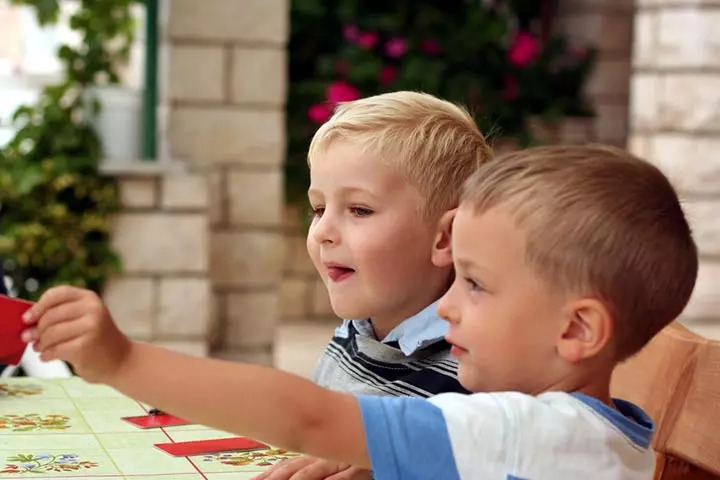
Image: Shutterstock
Pass the bomb is an educational game that will test your child’s alacrity. The first player should say a word and pass the bomb as quickly as possible to the next player, who must say a similar-sounding word. The players need to be quick in passing the bomb before it explodes. You can get this board game at a shop or simply make your own set.
Age group: 5 years and above
No of players: 2 or more
How to play:
- Take a set of card papers and write two- and three-letter words on them with a marker.
- The first player picks up a card and passes it around.
- The “bomb” goes off after a certain time. If you have made the cards at home, you can use a timer or even play music.
- The moment the timer goes off (or the music stops), the player holding the card is out.
- However, before leaving, they have to say a word that contains the word written on the card.
- For example, if the card has “ART” written on it, the child who gets out can say a word with ART in it, such as part, mart, or cart.
1. How can word games help children improve their spelling skills?
When children engage in word games, they are required to focus on the spelling of various words, which helps them to learn and remember the correct spelling of those words.
2. In what ways can word games help children with their grammar?
Word games encourage children to think about language playfully and engagingly, making it easier to understand and remember grammar rules. Word games can also help expand children’s vocabulary, an essential component of good grammar. By learning new words and their meanings, children can improve their ability to express themselves clearly and accurately.
3. How can word games help children improve their vocabulary?
Word games are an excellent way to improve children’s vocabulary skills, as they help them learn new words and reinforce their understanding of familiar ones. Games such as Scrabble, Boggle, and crossword puzzles challenge children to think critically and creatively about words, requiring them to use problem-solving skills to develop new words and find hidden ones.
4. How can word games help children become better readers?
Word games can help children become better readers by improving their vocabulary, spelling, and comprehension skills. Such games require children to identify and create words, helping them to recognize new words and understand their meanings. This eventually improves their reading skills.
When education is imparted as activities and games, children tend to grasp it much faster and retain it longer. So, if you want your children to have great communication skills, fluent vocabulary, and fascinating imagination, involve them in word games for kids. Games, such as I spy, make a word, or hink pink, are effective in keeping children engaged and sharpening their grammar and vocabulary. Another good thing about these games is that you can be involved in playing too. So, choose a suitable word game according to your child’s age and have fun while playing.
Key Pointers
- Word games stimulate the brain to improve reasoning skills, vocabulary, and language skills.
- Spur creativity through games such as I spy, rhyming words, and hink pink.
- Test the memory with games such as guess the correct word and make a word.
Was this article helpful?
The following two tabs change content below.
- Reviewer
- Author
Teachers are always on the hunt for great sight word activities. Sight words are any words readers recognize automatically “by sight”—for fluent readers, that’s almost all words! High-frequency words, the most commonly occurring words in written English like those on the Dolch list, are often thought of as the most crucial sight words.
It’s a myth that blindly memorizing every letter in a sight word is the only way to learn it. The science of reading tells us that linking sounds and letters is the most effective way for kids’ brains to learn any word. Many common words are easy to tackle using beginning phonics skills (like “at,” “can,” “him,” etc.), so staying true to a strong phonics curriculum is one way to support kids’ sight word learning. Even irregularly spelled words have decodable parts, e.g., kids can use the sounds of “s” and “d” to help with “said,” even if the “ai” is unexpected. Experts often call these words “heart words” to call out for kids that they should learn the unexpected word parts “by heart.” (If all this is unfamiliar to you, it can feel overwhelming, but you’ve got this! Check out teaching guru Jillian Starr’s explanation for more help.)
Check out these low-prep and engaging sight word activities for both teaching and practicing words.
Sight Word Activities for Introducing Words
1. Map it and drive it
This is a genius way to introduce words with appealing materials: Say the word, represent each sound with a LEGO brick, write letters for each sound, and “drive” to read it.
Source: @droppinknowledgewithheidi
2. Smush play dough for each sound
Set up a routine that works for any word. Play dough squishing for each sound is the ultimate multi-sensory component.
Source: @playdough2plato
3. Map words with a magnet wand
It is so super-satisfying to drag those magnetic dots around! Watch the video below for lots of tips on introducing a word using this process.
Source: @warriorsforliteracy
4. Make a mini book
Lots of handy info in one place for your little learners.
Source: @hughesheartforfirst
5. Tap it, pop it, learn it!
Hardwire those words in kids’ brains with this comprehensive word intro routine. (You had us with the pop its!)
Source: @hellojenjones
Sight Word Activities for Practicing Words
6. Find and swat words
An oldie but such a goodie. Find a word in an array and WHACK! Swat it with a fly swatter!
Source: @kids_play_learn_laugh
7. Flip word pancakes
Serve up sight word pancakes while practicing spelling them aloud.
Source: @bee_happy_teaching
8. Wear heart word bracelets
Make kids feel like sight word VIPs.
Source: @teachingmoore
9. Search for sight word balls
Write sight words on ball pit balls with a chalk marker or dry-erase marker. Kids can race around hunting for balls to read and toss in a basket, or hunt through a big tub of balls for a certain word.
Source: @preschoolforyou
10. Start a sight word band
Loud but oh-so-fun! Feel the rhythm while tapping and reading sight words stuck to homemade percussion instruments.
Source: @earlyyears_withmrsg
11. Drive on a sight word path
This is one of many fun ways to use magnetic tiles for learning! Kids love “knocking down” word tiles with a toy car as they read each one.
Source: @travisntyler
12. Use sticky notes to inspire sight word sentences
Have kids stick words on items that give them ideas for sentences. “My Mom said to wear a helmet!” = so good!
Source: @kinneypodlearning
13. Write words on a sensory bag
So easy: Fill a zip-top bag with a small amount of kid-safe paint, seal well, and have kids practice “writing” sight words with their finger or a cotton swab.
Source: @makeitmultisensory
14. Wear a sight word crown
Wear your word proudly and practice reading others’ words. Fun in person or virtually.
Source: @mrsjonescreationstation
15. Play a magnetic-tile board game
We love new ideas for ways to use magnetic tiles for sight word activities. Easy to set up and fun to play.
Source: @twotolove_bairantwins
16. Spell words to a familiar tune
Get sight words stuck in everyone’s head, in a good way. We’d add a line for chanting the sounds in the word!
Source: @saysbre
17. Feed a word monster
Nom, nom, nom.
Source: @ecplayandlearn
18. Search for the pom-pom under sight word cups
Read all the words as you try to find the cup that hides the prize.
Source: @la.la.learning
19. Play sight word KABOOM
This classroom classic is perfect for sight words. If you need a refresher on the rules, Jillian Starr covers them.
Source: @essentiallykinder
20. Roll and write words
Roll, write, repeat.
Source: @mylittlepandamonium
21. Write words with rainbow colors
Bonus points for aromatic markers.
Source: @mylittlepandamonium
22. Trace words with flashlights
Stock up on batteries because kids never get tired of this!
Source: @giggleswithgerg
23. Find words in plastic eggs
Give kids a checklist of words to find as they open each egg.
Source: @blooming_tots1
24. Spy words around the classroom
Just add a magnifying glass and clipboard to make kids feel like supersleuths!
Source: @readingcorneronline
25. Find words in the morning message
Don’t forget about old standbys! This is one of our favorite ways to get kids to recognize sight words in connected text.
Source: @tales_of_a_kinder_classroom
26. Build words with bricks
Such a great use of extra building bricks!
Source: @raysinkinder
27. Write words in sand
Easy-peasy to set up and keep neat if you use plastic pencil boxes.
Source: @teacherhacks
28. Spell words on a construction site
Bulldozing over each word to read it is the best part!
Source: @planningplaytime
29. Spell words with toy cars
Drive on over!
Source: @lozlovesprep
30. Park in a sight word “parking lot”
This one is easy to modify based on whatever toys are available in the classroom or at home.
Source: @msbendersclassroom
31. “Plant” words in play dough
Watch those reading skills grow!
Source: @planningplaytime
32. Build words in a sensory tub
Because spelling is just more fun when your hands are covered in beans!
Source: @coffeeandspitup
33. Write words on a magnetic drawing board
That eraser track makes for a perfect word card holder!
Source: @moffattgirls
34. Or write words on the window!
Everyone wants a turn to write on the window!
Source: @kindergarten_matters
35. Shhh! Discover words written in invisible ink
Write words in white crayon and reveal them with watercolors on top!
Source: @teachstarter
36. Dot-paint words with a cotton swab
Calming and effective.
Source: @sightwordactivities
37. “Type” words on a keyboard
Busy day at the sight word office! Use a keyboard cover or any old keyboard.
Source: @lifebetweensummers
38. Read words before heading through the door
The line leader can double as the word pointer during transitions.
Source: @ms.rowekinder
39. Read the word the teacher’s wearing!
Wait, is there something on my shirt?
Source: @theprimarypartner
40. Take a sight word cakewalk
Choose a winning word when the music stops!
Source: @joyfulinkinder
41. Play sight word hopscotch
If you can’t get outdoors, tape on the floor works just as well.
Source: @wheretheliteracygrows
42. Play tic-tac-toe
I’ll be team “the.”
Source: @create_n_teach
43. Go sight word bowling
No bowling pins? Use half-filled plastic water bottles instead.
Source: @thecreativeteacher_
44. Ready, aim, read
Just throw a beanbag at a word target if foam darts are a no-go.
Source: @laurens_lil_learners
45. Play muffin tin ball toss
Toss and read. It’s easy to use colored muffin cups to prep different sets of words.
Source: @homeschooling_fun_with_lynda
46. DIY sentence flash cards
Authentic use of words in context for the win.
Source: @teachertipsandtales
47. Play sight word checkers
King me! If kids don’t have a partner available, they can “play” with a stuffed animal and get double practice.
Source: @sightwordactivities
48. Play sight word Guess Who?
Set up this game once and use it forever.
Source: @lessons_and_lattes
We’d love to hear—what are your favorite sight word activities? Share in the comments below.
Want more articles like this? Be sure to sign up for our newsletters.
Plus, what are sight words?
These free sight word activities and sight word games require very little prep and are super easy to differentiate for any level. Better yet, the kids will beg to play them!
Most are editable so you can use them for any high frequency words or heart words you are teaching.
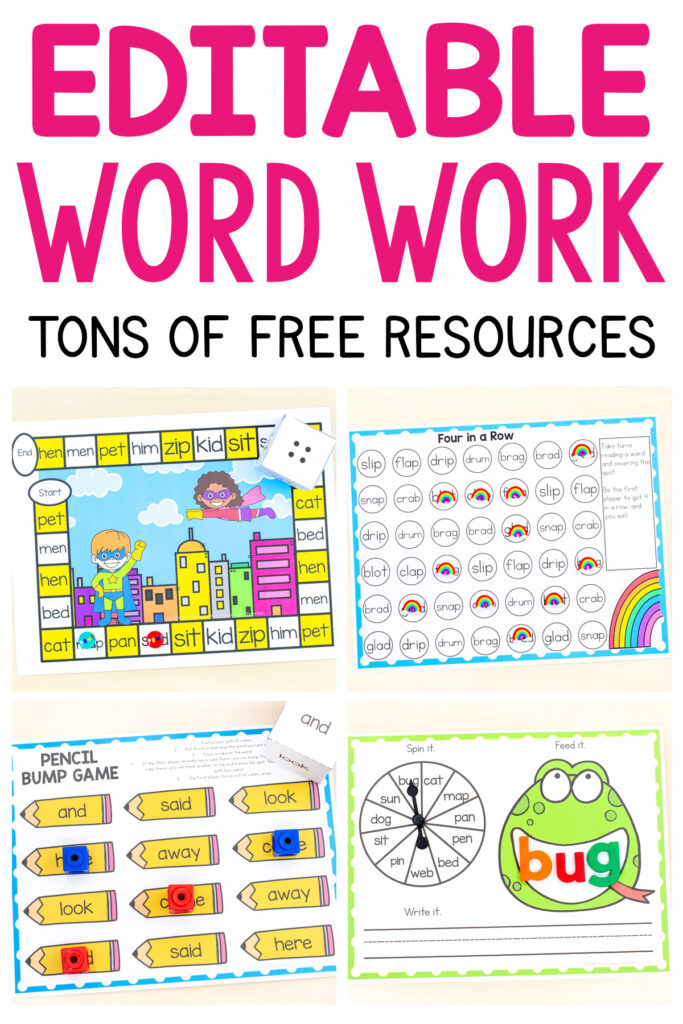
These high frequency word resources are going to make differentiation super easy for you!
Fun Sight Word Games
These word work activities are perfect for kids who are learning to read and need fun, hands-on ways to learn to read and spell words.
Forget the flash cards and the quizzing and give these digital and printable activities a try. You won’t regret it.
My kids beg to play these sight word games and activities and we are able to use them to work on a large variety of skills.
Most of the games are editable which means you can also type in CVC words, blend words, word with digraphs or vowel teams, and lots of different phonics skills.
Differentiated Word Work
Because most of them are editable, you can easily change out the words whenever you need to.
Changing the words on the games can be done in a matter of a minute or two. It couldn’t be any easier!
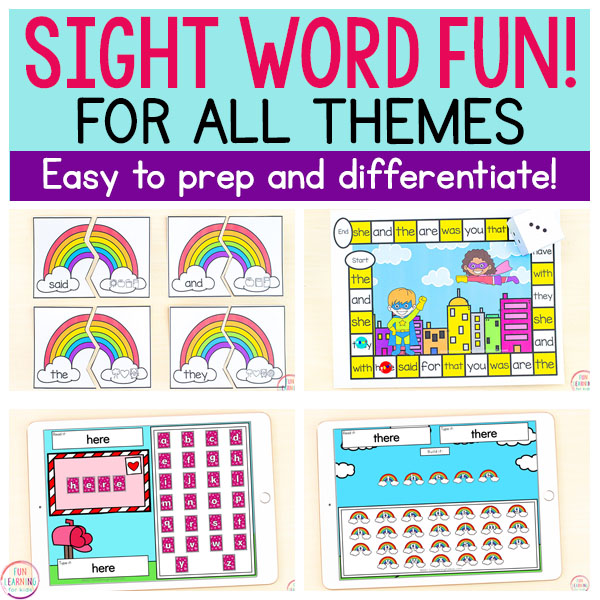
High Frequency Words Activities for All Themes
These sight word activities and games come in a large variety of themes, so you can find activities for any season and many of the different themes you use in your classroom.
There are resources for fall, winter, spring and even summer as well as activities for most of the major holidays.
Plus, there are sight word activities for lots of fun themes like unicorns, robots, dinosaurs, and more!
Check out the list of sight word resources below!
Get the Editable Sight Word Games Bundle Today
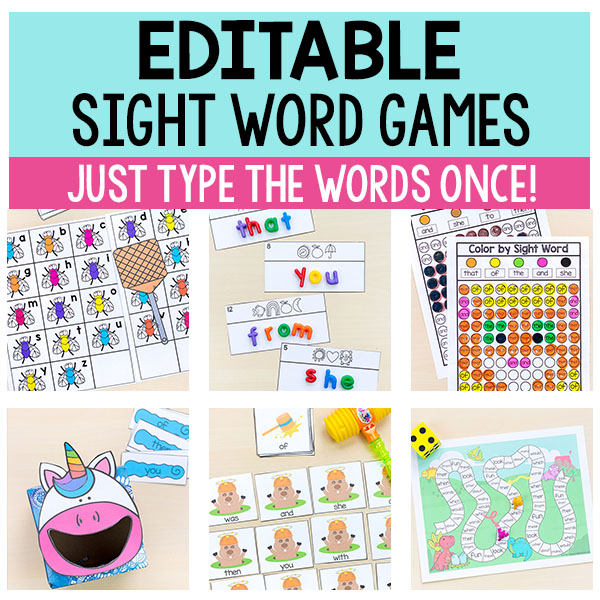
Want to make learning sight words even more fun? Then you will LOVE our editable sight word games bundle! It is our best-seller and teachers have given it rave reviews.
Fun Vocabulary Activities For Kids
Have you tried teaching vocabulary activities to kids? If not, then you must start exploring creative ideas to teach vocab activities for kids. Fun vocabulary activities play a vital role in strengthening the basics of language and communication in kids. However, kids tend to fall prey to boredom in an early stage of learning regardless of how creative the activities are. It is essential to provide them with engaging content and vocabulary activity that help them to stay active throughout the learning process. To attain mastery in English language, you must start inculcating vocabulary skills among kids. These vocabulary words for kids will enable them to communicate effectively with others.
Teaching vocabulary activities are imperative. It is highly recommended for kids to learn vocabulary words from the beginning. Must say! There are quite fun vocab activities available for kids. These activities will not make kids fall under boredom or lose interest in learning something new. Instead, they will push themselves towards learning words for better educational growth. Let children draw a sketch that sums up either each word, number or color. It is a joy that gives them an illustration for visual identification and to enhance the kids’ learning experience.
Different Types of Vocab Activities
When talking about vocabulary activities, one must make a note of all the 4 related vocabularies. Namely,
- Listening vocabulary
- Reading vocabulary
- Speaking vocabulary
- Writing vocabulary
For kids who are still in the learning phase of reading, speaking vocabulary is usually larger than their reading vocabulary. There is a great association between the four vocabularies and corresponding vocab activities. Progress in one area commonly leads to growth in another. However, it is highly recommended to furnish the kids with fun vocab activities.
Ways Of Teaching Vocabulary Activities
- Vocabulary activities do not necessarily need to begin at school, parents can introduce the kids to vocab activities right from the beginning at home
- Keep the children on their toes by flashing the ‘flashcards’ quickly, back to front or upside down
- Color code or number the flashcards
- Bring out the new innovative ideas to keep the kids engaged for a long duration of time
- Challenge them to form a sentence by giving a keyword
- Prepare the vocab activities list in a colorful and interactive way
- Ask the kids to read aloud and this boosts their confidence
- Engage them with visual appealing content to teach vocabulary
- Provide ample amount of time for learning vocabulary
- Do not make it monotonous with the same kind of activities
- Conduct different types of engaging vocabulary activities for kids
- Teach vocabulary indoor and outdoor for better understanding
- Use sustainable or household materials to teach vocabulary to kids
List Of Vocabulary Activities
Mastering vocabulary is always fun for kids when provided with interactive vocabulary activities. Children enjoy new ways of learning, which helps them find the precise word with these fun vocabulary activities. Good vocabulary exercises boost more than just memorization of keywords. It explores antonyms and synonyms, and usage of the latter. Below mentioned are a few interesting vocabulary activities:
- Draw Vocabulary Sketchnotes: Kids enjoy sketch notes! Rather than writing out explanations, one can let them draw a sketch that explains each word. It is a lot more fun and offers them a concept for visual classification and helps them remember the meaning.
- Discover the Power of Words: Vocabulary concepts take on larger meaning when children add them into their routine. Challenge them to use their vocab words in discussion. Give them a free hand to practice the free printable worksheets to help them keep track.
- Word of the Week: Make a note of a few keywords that require attention and add them to vocab activities. Pick a new word every week, then explore it in depth day by day and form sentences accordingly.
- Solve it: Prepare a set of riddles for kids where they have to come up with logical answers to the questions asked.
- Bingo: Give the children a copy of posters for the vocabulary as well as a new bingo card. Instruct them to pick a particular number and attach them to their blank bingo card. Alternatively, they could either write or draw the vocabulary. Store an entire set of posters into a hat and pick them out one by one. The first child to tick all the items on their card shouts ‘Bingo’. This is one of the best ways to teach them young, alongside such fun vocab activities namely, Genius Words provided by Osmo.
- Recycle Vocab Activities: Introducing and reciting vocabulary in the classroom can be done in interactive, enjoyable and motivating ways. It is also important for children to recycle vocabulary as much as possible. However, this can be done during vocabulary activities in online classes.
- Osmo Words: Check our osmo words for kids to expand their vocabulary skills in a fun and entertaining way. With the help of images shown on the screen, you can critically think and come up with words. If the words are correct, kids will get points. Therefore, explore this game to play vocabulary words.
- Write the sentences: Kids have to choose five different vocabulary words from the list provided to them. Once they choose the words, kids have to write two sentences on each word. If the sentences that they have phrased are meaningful, they will be given points.
- Make posters: Creativity is something that we need from all the kids. Isn’it? Why not make use of their creativity and learn something new. Give a list of words to the kids and ask them to make posters as per their choice. They can use images or any other form of materials to enhance their posters. While making posters, kids will pay attention to the words that they are using. In this regard, there will be a lot of learning and retention of words in their memory.
- Act it out: Kids love to perform on stage if given the opportunity. Therefore, ask kids to enact the vocabulary words to their team members without any lip movement. If the team members are successful, give them points. Along with performance, kids will learn vocabulary words in an entertaining way. This is one of the best vocabulary activities for kids.
- Pictionary: Give a set of words to the kids and ask them to represent them in the form of an image to their team members. The team has to guess the word that their team member is trying to depict on the board. If they are successful in guessing the word, award them. Then, continue the game and declare the winner based on the number of points secured. Also, explore pictionary words for kids.
Benefits of Vocabulary Activities For Kids
Some of the vocab activities for kids mentioned below:
- Develops language skills.
- Enables clear understanding of words.
- Improves retention of words.
- Builds confidence to read and write.
- Improves academic performance.
Frequently Asked Questions on Vocabulary Activities
What are the different types of Vocabulary Activities for kids?
The different types of Vocabulary Activities for kids are speaking vocabulary, listening vocabulary, writing vocabulary and reading vocabulary. All these activities play a vital role in building a kid’s language skills and communication.
What are some of the fun Vocabulary Activities for kids?
Some of the fun Vocabulary Activities for kids are routine reading activity, learning one word per day, playing bingo, playing Osmo words, writing simple sentences and eventually learning small comprehensions, pictionary, etc.
A list of fun English word games for kids to help improve children’s spelling, reading, and vocabulary. This list of word games for kids includes word games that encourage conversation and early literacy that you can play on the spot or prepare yourself with just some paper and pencil.
Why are Word Games Good For Kids?
Word games and vocabulary games for kids are great because they get kids talking and using language while having fun. When you make a learning activity fun, kids don’t realise they are learning.
For reluctant learners, playing these word games can help and motivate them to want to play and learn more.
*This post may contain affiliate links, read more here.
10 Fun Word Games for Kids
Many of these word games for kids can be prepared easily at home with materials you already have. However if you don’t have time to prepare your own, you can also purchase a range of fun word games for kids HERE.
1. Hang Man

Probably one of the most popular word games for kids is the popular Hang Man. Player 1 thinks of a word and Player 2 has to guess it before they get “hung.”
Player 1 writes spaces for letters are written on the page so they know how many letters there are in the word. Player 2 proceeds to choose a letter they think may be in the word.
If it is correct Player 1 writes the letter down where it goes. If it is incorrect Player 1 draws part of the “hangman”. If the drawing is complete by the time Player 2 guesses, then Player 1 wins.
2. I spy
A really easy and fun word game for kids is I spy. You don’t need anything for this game except your imagination.
Player 1 thinks of a word and tells the others the first letter. “I spy with my little eye, something beginning with __” The other players need to guess the word. Whoever wins gets to be the spy!
This is a really great car game for kids too and helps to build vocabulary.
3. Bingo
Such an easy word game to prepare for kids. There are some really good versions on Amazon HERE. You can purchase the game, or use it as an example to make your own.
Draw a square grid on a page and choose a theme. Write out some words using the theme. Eg, beach: swimming, sand castles, water, sea shells, dolphin, sunbeds, picnic etc.
Make an extra copy of the words ensuring there are a few extra than the amount on the page. Cut them up into squares and put in a bowl scrunched up.
Take turns in pulling out a word and reading it out loud, then finding it on your page. The first person to find all of the words calls out Bingo and is the winner.
This fun word game for kids helps with reading and talking aloud.
4. Word Family Game
This game requires children to rhyme. Select one word and everyone needs to write as many words as they can that rhyme with that word. Eg. If the word is “Cat”, answers could be: hat, bat, rat, sat etc.
This is a great word game to help build kids vocabulary and help their language skills.
5. Word Search
Another fun but challenging word game for kids is a word search. Draw a grid of 10 x 10 squares and place as many words as you can within the grid. Words can go up, down, or diagonal, and letters can overlap to be used more than once.
Create a list on the side or bottom of the page of the words you have entered. Then once you cannot fit anymore words in, fill the blank boxes with random letters.
Kids will need to find the words as quick as possible. This can be a fun word game to do individually or as a team. For kids who like to compete, you can make identical grids and see who finishes first.
This word game encourages persistence and helps to improve their literacy skills.
6. Unscramble the words
A simple word game for children that will get them really thinking! Write a list of words down on paper but scramble the letter order while writing. Kids will need to look at the letters and try to work out what the word is and guess it.
This can be quite a competitive word game, but it helps to really get their mind ticking.
7. Scategories
While this is also an official board game, (which you can find online here) you can also make it yourself quite easily. Each player has a piece of paper and pencil.
Select 10-15 categories. These can be anything you like but remember they should be popular enough that you can guess something with most letters. Eg. Country, Movie, Body Part, Actor or Actress etc.
Once you have your categories it is time to choose a letter. Without a dice, the easiest way is to write the letters randomly on a piece of paper.
Then one person closes their eyes and points to a letter. When the letter has been chosen, players have 2 minutes to fill in the gaps with something in each category starting with that letter.
Winner is the one with the most filled in at the end, or the first to finish.
This is a really fun and competitive word game for kids that helps to improve their vocabulary, spelling, and conversation skills.
8. Words within a word
This word game requires kids to create their own words. Choose one really long word with at least 8-10 letters. The longer the better.
The aim of this word game is for kids to try to make a list of small words out of the letters of the long word. So for example the word COMPUTER includes: put, cot, term, core, mop, top, pet. Etc.
This is a really fun word game to help children’s spelling skills.
9. I am going on a picnic
A fun word game to help with your child’s memory and to get them talking.
One person starts and says “I am going on a picnic and I will bring some… fruit”
The next person says what the first person said, and adds something of their own. “I am going on a picnic and I will bring some fruit, and some sandwiches.
The next person says what the first, and second person said, and adds something of their own. “I am going on a picnic and I will bring some fruit, some sandwiches and some ice-cream.
You continue on and on and it gets more difficult to remember everything. We usually can get to at least seven or eight, and surprisingly my pre-schooler can often remember more than me!
This conversational game helps with memory, and also learning new vocabulary.
10. Story prompts
This word game involves making up a story by taking turns in saying sentences. One person starts the story, and says the first sentence. The second person continues the story with another sentence, and so on.
The stories can become very interesting as each person has different ideas. Bilingual flashcards are great for this or you can find a great version online HERE.
This conversation activity helps kid’s imagination, as well as building their vocabulary.
Other Fun Learning Resources for Kids?
If you love these English word games, check out these posts!
English Classroom Games – To play in class or at home
Knock Knock Jokes – To get the kids laughing
Best Board Games for Kids – Educational and fun
Top Book Sets for Kids – For all ages
Which English word games do you play with your kids?
These fun English word games for kids can be played with children of all ages and also with adults just by adapting certain aspects of the game to suit the age of the player.
This list of word games for kids will keep kids entertained for hours on end without feeling like they are actually learning.


Vocabulary is the foundation for language development. Vocabulary expansion plays a critical role in reading comprehension, and it is also essential to the improvement of communication skills. Expanding a child’s vocabulary impacts his overall writing, reading, listening, and speaking skills which allows him to understand and connect with the world. These assignments for students will provide you with activities to help students at various grade levels achieve essential vocabulary standards.
1. Vocabulary Wheels
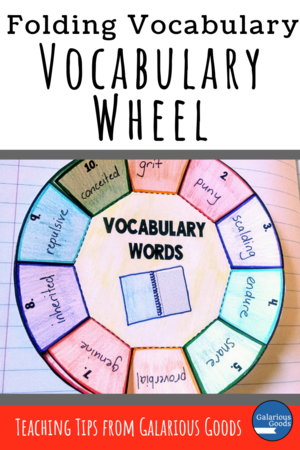
Students will love this engaging vocabulary activity. They can work individually or in pairs or groups to create one or two wheels to connect the vocabulary words with their definitions. Teachers can adapt this accurate matching activity for any age group to teach effective vocabulary in their classrooms. Learn about this fun activity as well as two others here.
Learn more: galariousgoods.com
2. Comic Strip Vocabulary
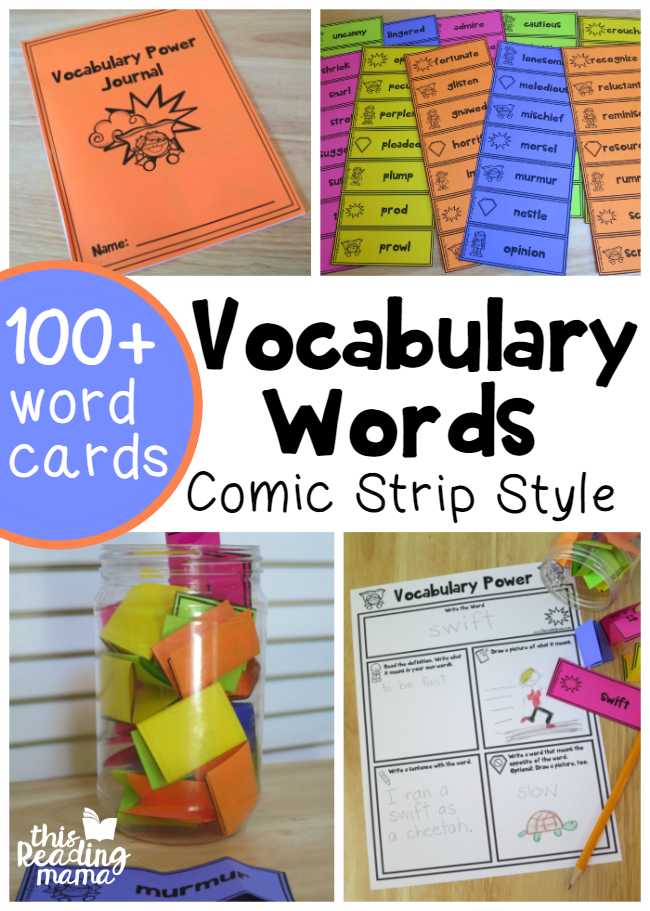
This fun vocabulary activity involves using a controlled vocabulary list to have students write the closest matching definition in their own words, draw a picture of the meaning, and use the word correctly in a sentence. The goal of this engaging activity is for students to correctly use vocabulary words in conversations.
Learn more: thisreadingmama.com
3. Roll A Word
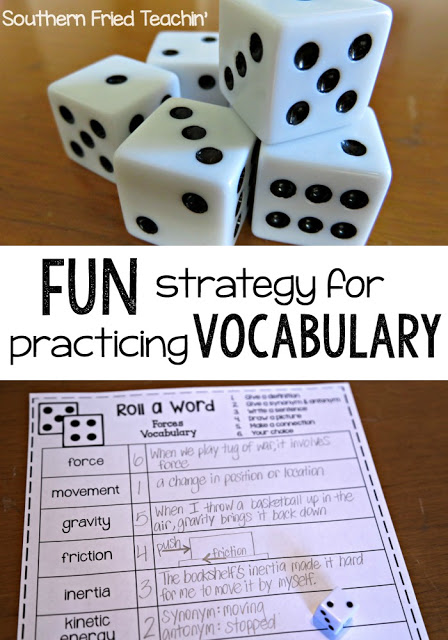
This vocabulary activity is anything but boring! The Roll a Word vocabulary sheet can be used with any vocabulary words and any age level. Students will enjoy rolling a die. The vocabulary activity depends on the number the student rolls. Learn the directions for this great game here.
Learn more: southernfriedteachin.com
4. Ice Cream Scoops
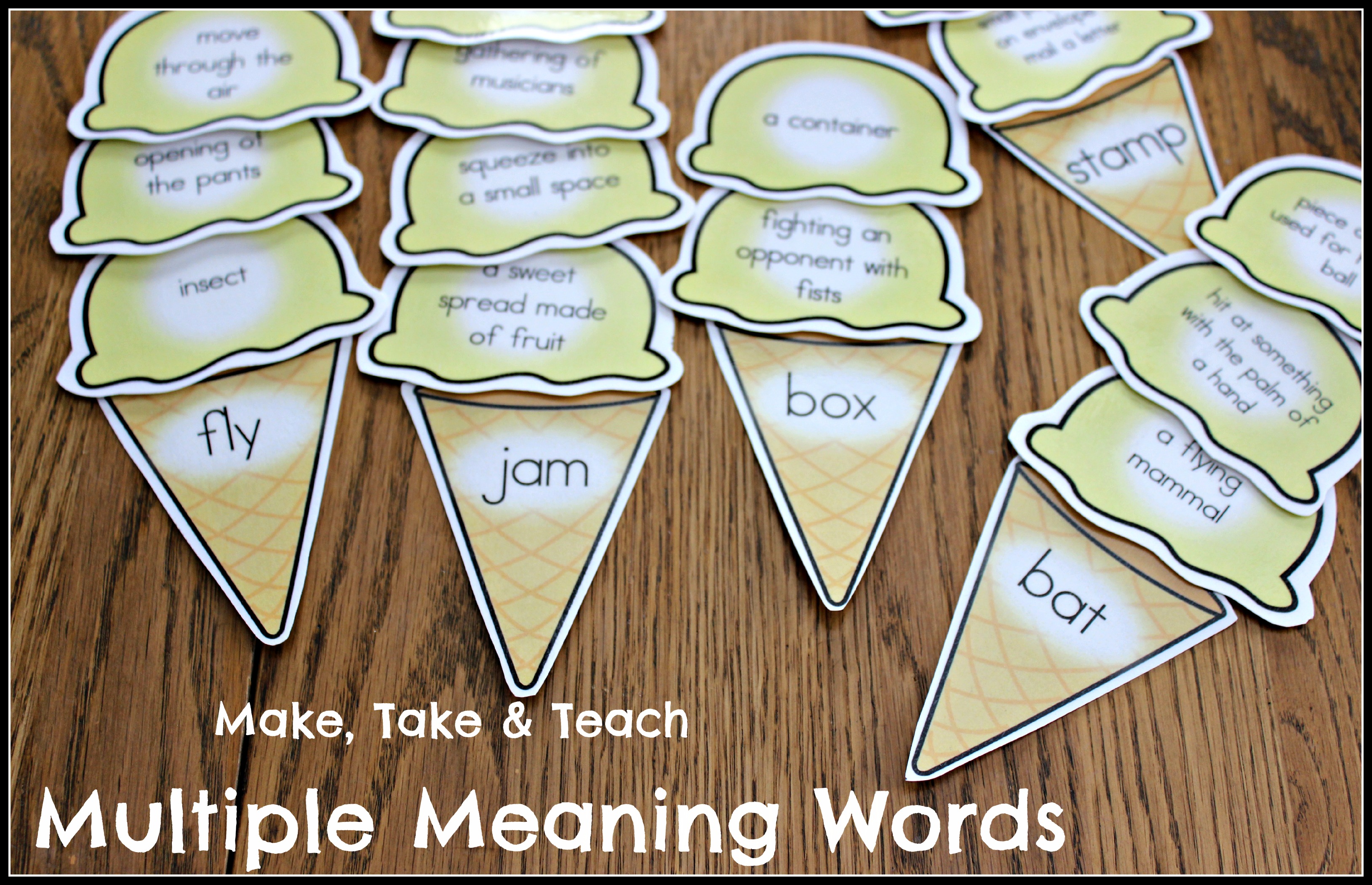
This creative activity focuses on multiple word meanings. This activity is an efficient method for helping students understand that some words have different meanings based on how they are used in spoken or written language. Once students understand this, they will have an increase in vocabulary retention and expansion.
Learn more: blog.maketaketeach.com
5. Word Graffiti

This is a wonderful activity to use with your students before they read an assignment. It is definitely not a difficult task. The teacher can use a customized list of words for focus and write them on dry erase boards or large paper. The students can work individually or in groups to complete this fun and engaging activity.
Learn more: funinfourth.ca
6. Fancy Nancy
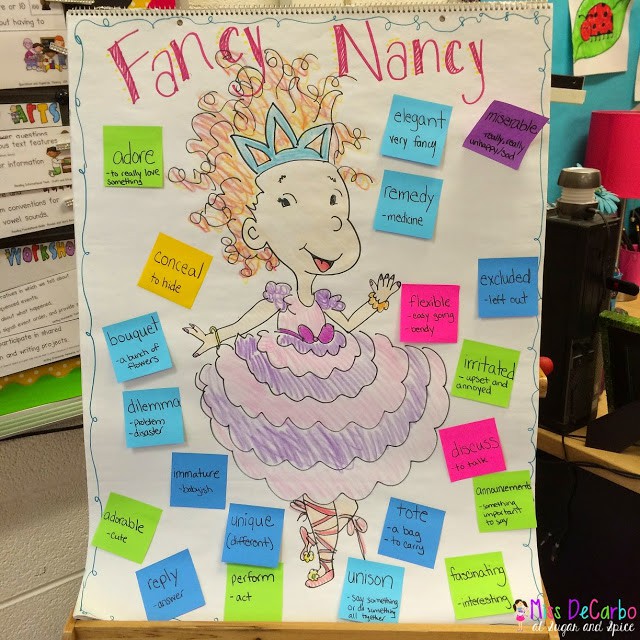
This chart is an astounding way to teach students to use context clues. The teacher is the facilitator and should model how the vocabulary word is used in the context of the story that is being read in class. The teacher will also provide examples of how the students could apply the vocabulary word in their daily lives. Learn more about the Fancy Nancy activity here.
Learn more: missdecarbo.com
7. Vocabulary Basketball

Do you need a fun way to keep your students interested in learning vocabulary? Then, vocabulary basketball is the perfect game for your classroom. Use this fun-filled basketball activity to review a vocabulary lesson while you observe student progress.
Learn more: 4theloveofteaching.org
8. Word Grid Challenge
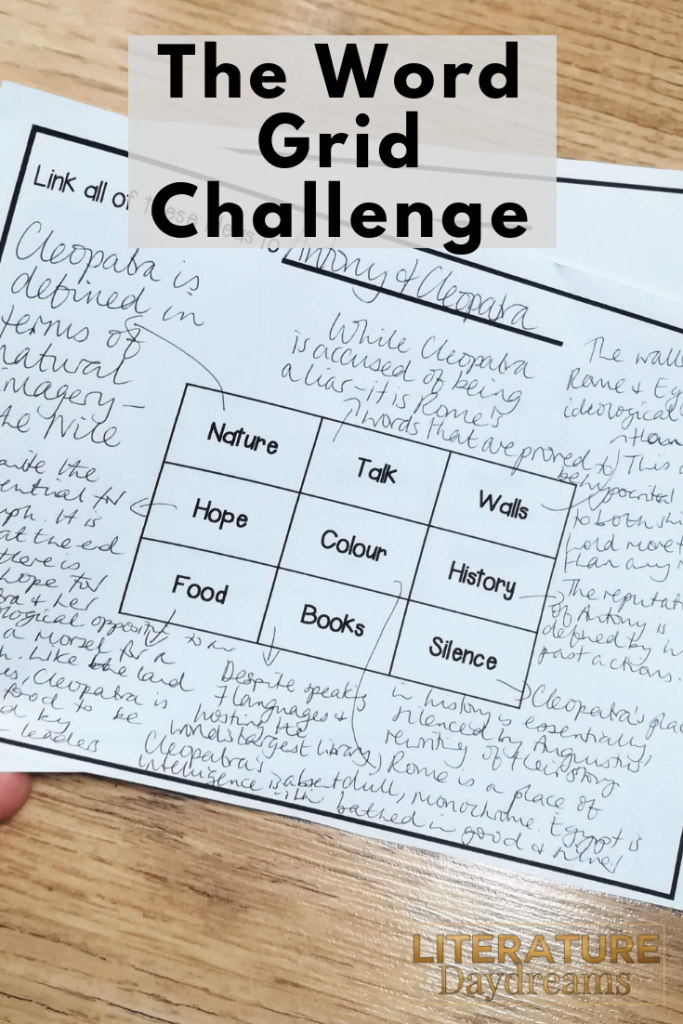
Students will enjoy this creative vocabulary assignment that can be used with any subject. Teachers love using this activity in their classrooms because it is easy to create, and it keeps students engaged and on task. Learn how to make your own word grids for your classroom here.
Learn more: literaturedaydreams.com
9. Swat the Vocab

Are you searching for a way to motivate your students about vocabulary review? The, Swat the Vocab is the perfect game to use in your classroom. Students will enjoy working in teams to compete against one another as they learn vocabulary words. Find out more about this game here.
Learn more: foreverinfifthgrade.blogspot.com
10. Vocabulary Categories

This efficient matching vocabulary game can be used with most grade levels and with any subject area. It is a terrific activity that encourages students to use their critical thinking skills while learning the definitions of various words. Read more about how to incorporate your own Vocabulary Categories game into your daily lessons.
Learn more: classroomfreebies.com
11. Magnetic Poetry

Promoting efficient learning with this inexpensive magnet word set is a terrific way to address many students’ needs. Students can create sentences or short stories while they practice syntax, articulation sounds, and vocabulary. Learn more about this activity here.
Learn more: Magnetic Poetry for Kids
12. The Zoo — Core Vocabulary Song

Students love music! Your younger students will enjoy participating in song vocabulary with The Zoo Song. This video contains a language and speech song that has an emphasis on core vocabulary.
Learn more: pinterest.com
13. Academic Vocabulary

Academic vocabulary is critical to student learning. Use these words and strategies to see systematic vocabulary improvement in your students’ skills. This is a terrific way to improve structured response questions on assessments.
Learn more: musingsfromthemiddleschool.org
14. Sequencing With Balloons

Lots of kids love popping balloons! This activity includes adding small strips of paper that include events from a familiar story. Students will learn about sequential context and sequential rearrangements from this activity. Find out more about this fun activity here.
Learn more: cassiedahl.com
15. Multi-Syllable Words
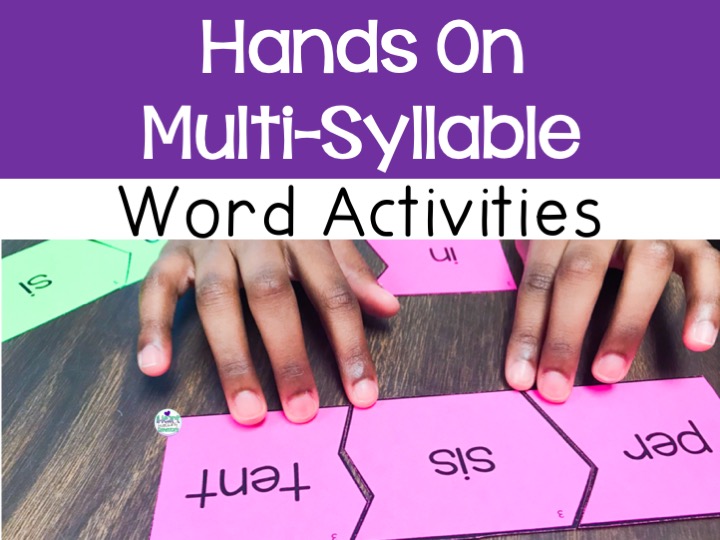
This hands-on activity allows struggling students to effectively move from decoding individual syllables to multi-syllable/consecutive syllable words. This will assist students in improving their reading fluency and overall vocabulary.
Learn more: iheartteachingelementary.com
16. 3 Ways to Stress a Syllable

This is a terrific syllable phonology resource for teachers to help their students understand when to stress a syllable. This video includes the long vowel, clear vowel, and pitch per syllable.
Learn more: pinterest.com

If you are searching for fun and entertaining vocabulary activities, your students will enjoy Hot Potato Vocab, Magic Hat Vocabulary, and Swat the Vocab Word. These activities will make the learning of vocabulary words an exciting part of the school day.
Learn more: inspiredowlscorner.com
18. Vocabulary Activities for Any Word

These engaging and interesting vocabulary activities can be used with any vocabulary words you choose. These activities will help your students learn more about their vocabulary words and internalize their definitions. You can learn more about these fun activities here.
Learn more: babblingabby.net
Concluding Thoughts
Vocabulary is an essential and necessary component to a student’s overall academic success. Enhanced vocabulary instruction is important to master all subject areas. Incorporating effective vocabulary instruction into your daily lessons can be difficult. Therefore, it is crucial that you make the instruction extremely interesting and engaging for your students. The activities suggested above should provide you with a great variety of lessons as you plan interesting and engaging vocabulary instruction in your daily classes.

If you teach English to kids you probably know that young learners get bored easily. So, how do you get young learners interested in learning vocabulary? The best way is through fun and exciting ESL vocabulary games and activities. That’s why we put together this list of the best ESL vocabulary games to get your students excited about learning English.
For more classroom game ideas, check out our other post, 10 Fun Guessing Games for Young Learners.
1: Pass The Ball
This classic classroom game is incredibly fun and a great activity to get your students motivated and energized. It’s also a fun way to introduce or review vocabulary with students. All you need is a soft ball and some flashcards.
How To Play:
Students will pass the ball around the class and when the music stops, the student with the ball must answer a question from the teacher. For example, if you are teaching vocabulary to do with colors, the teacher might ask ‘What color is it?’.
Another way to play is, when the music stops, the student with the ball can ask the question and all the other students must answer. This way all students get to practice the vocabulary while playing the game.
2: Line Bingo
This ESL vocabulary game is a great alternative to regular bingo. Most textbooks these days come with small picture / word cards at that back that students can use for this game. If you don’t have these cards, visit our flashcard page where you can download and print these ‘student cards’ for free.
How To Play:
Give each student or pair of students one set of vocabulary cards. Ask them to place them in a horizontal line in any order they want. Once students have placed their cards in a line, the game can begin.
The teacher should say one of the words and if that word is on the left end or the right end of the line then students can turn that card over. If the card is in the middle of the line, students cannot turn it over.
For example, if you are teaching the present progressive / continuous tense you can ask students to shout out ‘What are you doing?’. Then the teacher can answer using one of the words on the card (e.g. ‘I am painting.’). Then students should look at their line of cards and check if ‘painting’ is on the left or right end of their line.
The first student / pair of students to turn over all their cards is the winner. To make this vocabulary game more fun, invite your students one by one to the front of the class to choose the next word.
3: Hot Seat
This simple no prep game is a great way to get students to utilize all their existing vocabulary while learning new words at the same time.
How To Play:
To play this game, you can divide the class into 2/3 teams or you can just play as a whole class. Choose one student to sit in the ‘Hot Seat’. This is a seat at the front of the class facing the other students.
Then from behind the student in the hot seat, show the other students a word from the lesson. The other students must try to describe what the word is without saying the actual word. And the student in the hot seat must guess.
Kids absolutely love this game and it is a great way to review vocabulary that your students have learned that lesson.
4: ‘1 2 3 Go!’ Game
For this vocabulary game you can use flashcards or you can simply write the words on the board.
How To Play:
Put the flashcards (or write the key words) on the board in a line. 6-8 words is the best. When the teacher says ‘ 1, 2, 3, Go!’ one student must jump up and shout the first word. Then another student must jump up and shout the second word. Then another student must jump up and shout the third word. And so on until all 6/8 words have been called out.
Any student can jump up and say any word at any time, but if 2 students jump up at the same time, then they lose.
This game can be played as a whole class, or if you have a large class, divide the class into teams.
5: Matching Games
These PowerPoint Games will test your students’ memories. Matching games are simple to make and great for reviewing vocabulary.
How To Play:
Divide the class into 2 teams. The aim of the game is to find two matching words / pictures. The teams will take turns choosing TWO numbers. Click on the square to reveal the word beneath. If the two words are the same, then that team gets a point. If they are different then click on red circle to hide the word again.
The game becomes more and more fun as it progresses because students start to remember where they saw the words. Download ready to use matching games and a blank template here.
6: The 4 Corner Game
This no prep classroom game is great to review vocabulary and as a listening activity.
How To Play:
Assign a word to the 4 corners of the classroom. Then, choose one student to come to the front and close their eyes. Then the other students have 5 seconds to move to one of the corners of the classroom. After the time is up, the student at the front will choose one of the words while keeping his/her eyes closed. The students standing in the corner with assigned with that word are out, and must sit down.
The game continues like this until one student is left. That student is the winner, and can be the next student to come to the front and close their eyes.
TIP: Many students moving around the class can be quite dangerous. For safety, instruct students not to run and make sure there are no bags, coats, books, etc, on the floor that the student can trip on.
7: Printable Board Games
Printable board games are easy to prepare and a great way to get kids talking using the vocabulary from that lesson. Download many printable board games and board game templates, and find detailed instructions on how to play them, here.
8: Hangman
If you’re not familiar with hangman, its a game where the teacher would think of a word and then draw a line for each letter of that word. Then students must try to guess what the word is by guessing letters of the alphabet.
In the traditional hangman game, if students guess wrong too many times, then the teacher would draw a man hanging from his neck on the board. Even though it is just a stick figure drawing, the idea seems quite gruesome and maybe not appropriate for children. That is why we made a fun alternative to hangman, ‘Save The Teacher’.
How To Play:
Think of a word and draw lines on the board corresponding to the letters in that word. Then ask students to guess letters of the alphabet to try to guess what the word is.
If students guess wrong, play the video and the fuse will get closer to the rocket. Pause when you see the pause sign and ask students to guess again. If students guess wrong too many times, then the rocket and the teacher will blast off into space.
Don’t worry, at the end of the video the teacher is okay and just went for a fun ride.
9: Hidden Picture Games
These PowerPoint games are easy to make and a great way to introduce or review vocabulary. Download ready made hidden picture games and an editable template here.
How To Play:
Click on the color shapes to make them disappear. As the shapes disappear the picture beneath is slowly revealed. When students are ready to guess what it is, they should raise their hand and guess while using the target language.
For example, if you are teaching vocabulary about animals, when the student guesses they should say ‘Is it an (elephant)?.
10: Whisper Game
This is a very fun classroom game and all you need is a board and chalk / a pen.
How To Play:
Write many words from the lesson on the board (at least 10). Then divide the class into two teams and ask them to make two lines in front of the board. Give the student at the front of each line a board eraser.
Next, the teacher should whisper one of the words to the students at the back of the lines. Then those students should quickly whisper the word to the next student in line, and then that student should whisper to the next student, and so on down the line.
When the word is whispered to the student at the front of the line, he/she should quickly run to the board and erase that word. The quickest one to erase that word wins a point for their team. Then change the student at the front and play again.
Immy is well and truly on the road to learning to read, arriving home from school with her very first levelled reader last week!
As I have shared previously, learning to automatically recognise high frequency sight words is an important part of learning to read as automatic recall positively influences reading fluency, which in turn aids clearer comprehension – you can read more about the importance of sight words to reading in this post – What Are Sight Words?
Providing lots of opportunity for children to revisit sight words is important to the development of automatic recall but this repetition doesn’t have to be boring, in fact the 50 sight word activity ideas included in the list below are most definitely not boring!
But before we get to the list, if your child loves playing games or learns best through fun and engaging activities (and don’t we all), please take a moment to check out our printable, no prep sight word games pack. Great for home revision, classroom literacy groups or withing learning support settings.
Christie Burnett is a teacher, presenter, writer and the mother of two. She created Childhood 101 as a place for teachers and parents to access engaging, high quality learning ideas.

